Why you can trust Tom's Hardware
Rendering
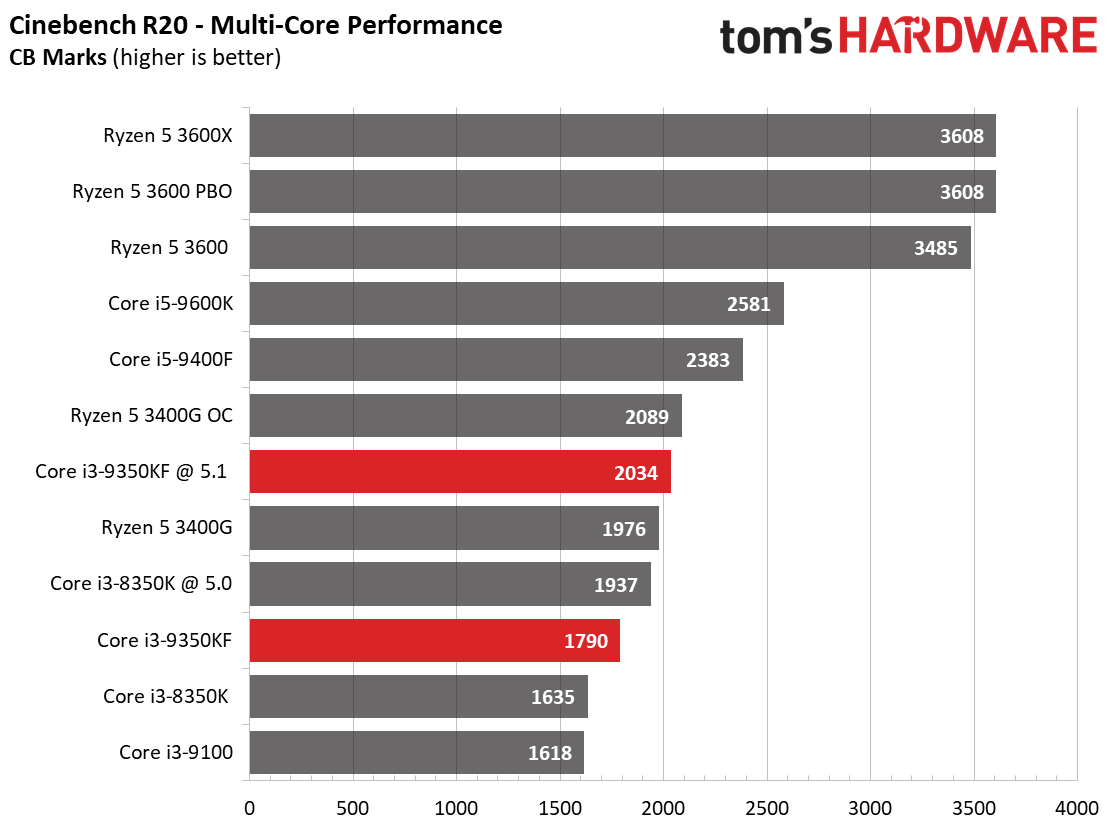
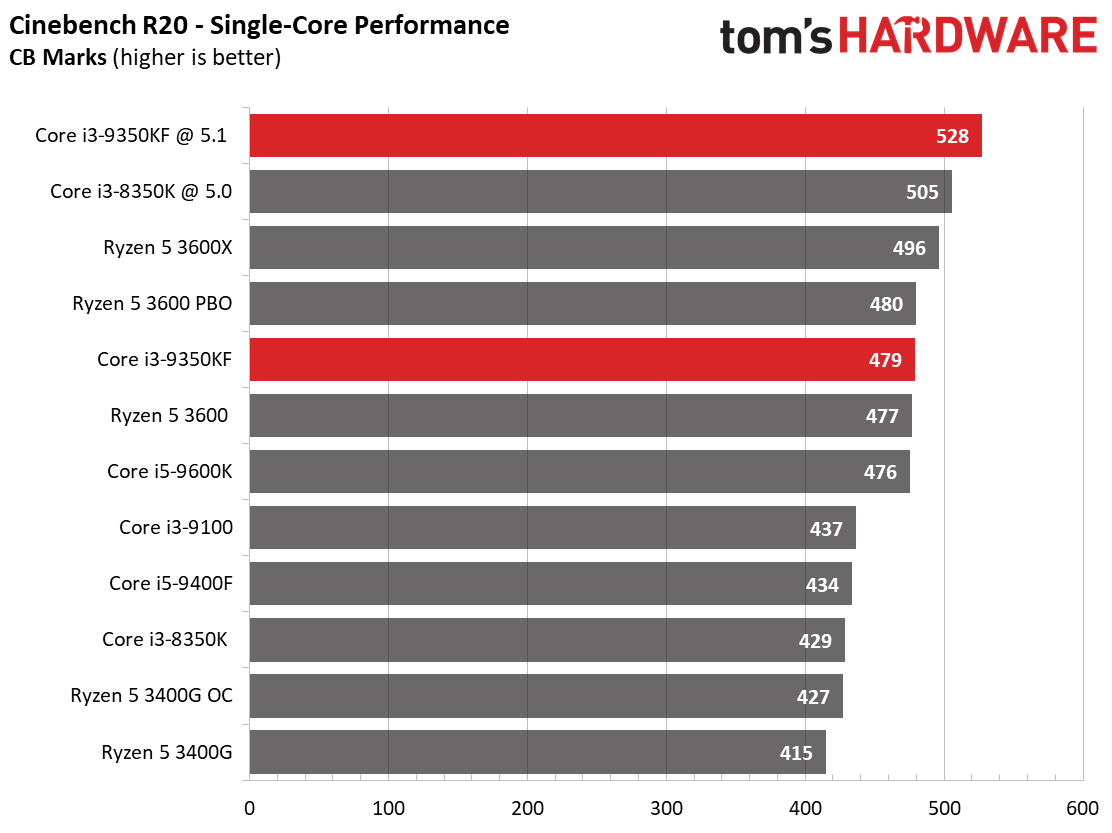
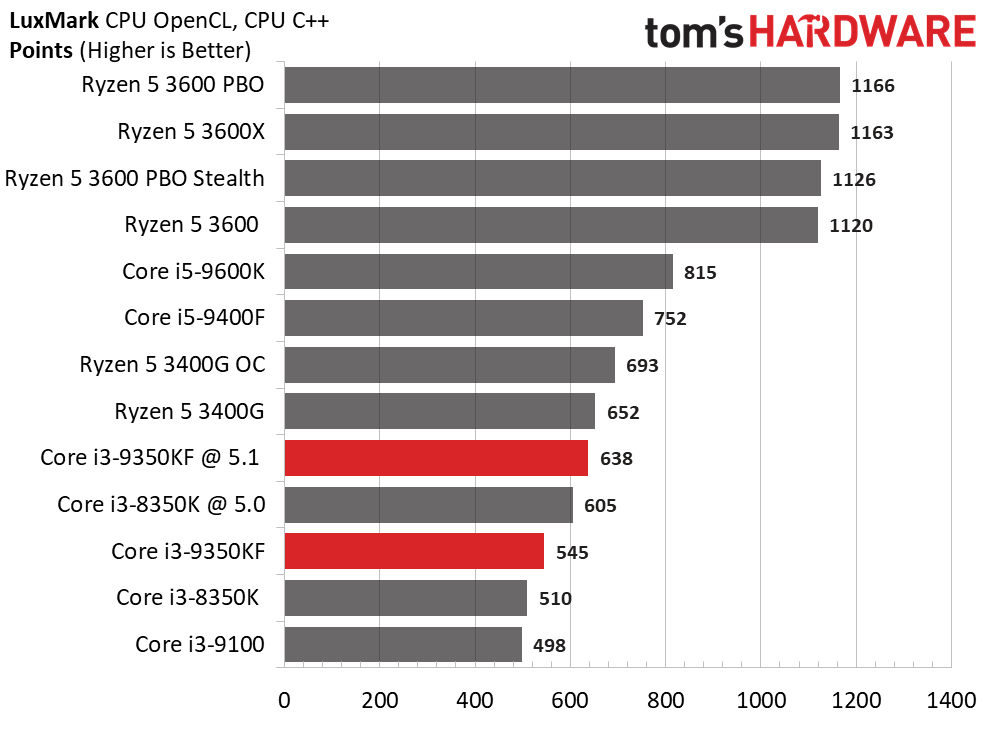
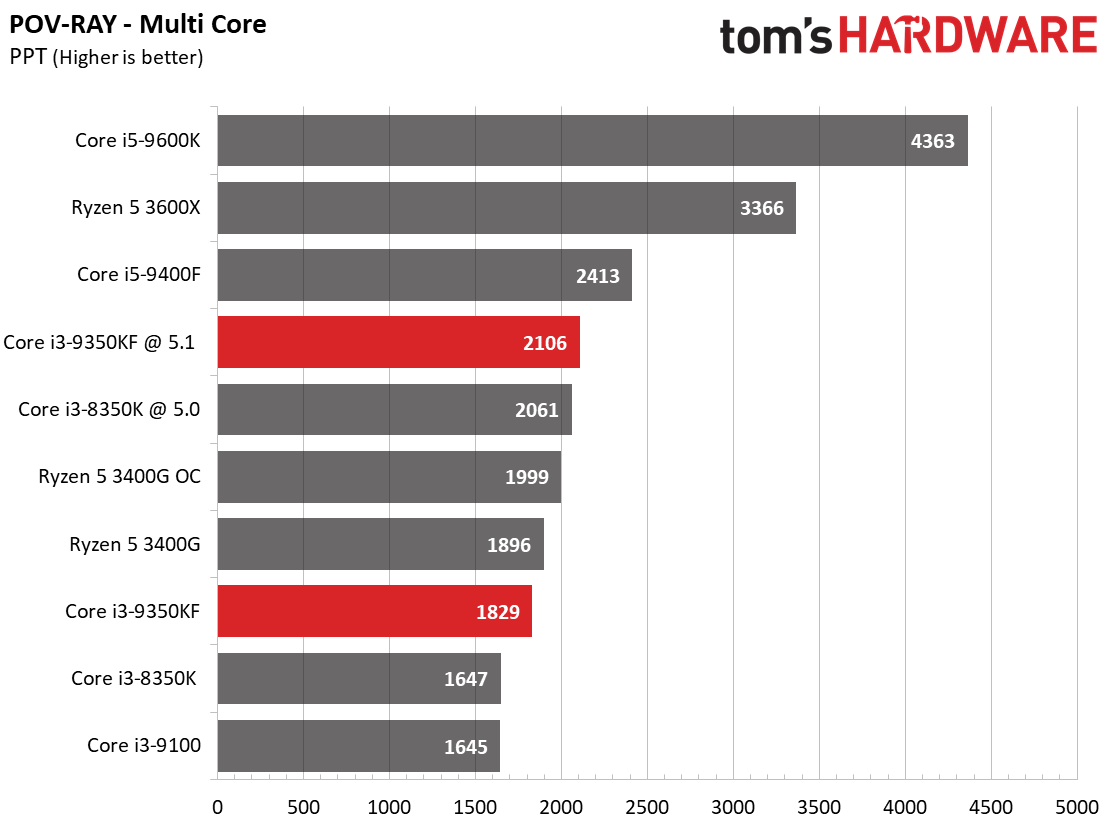
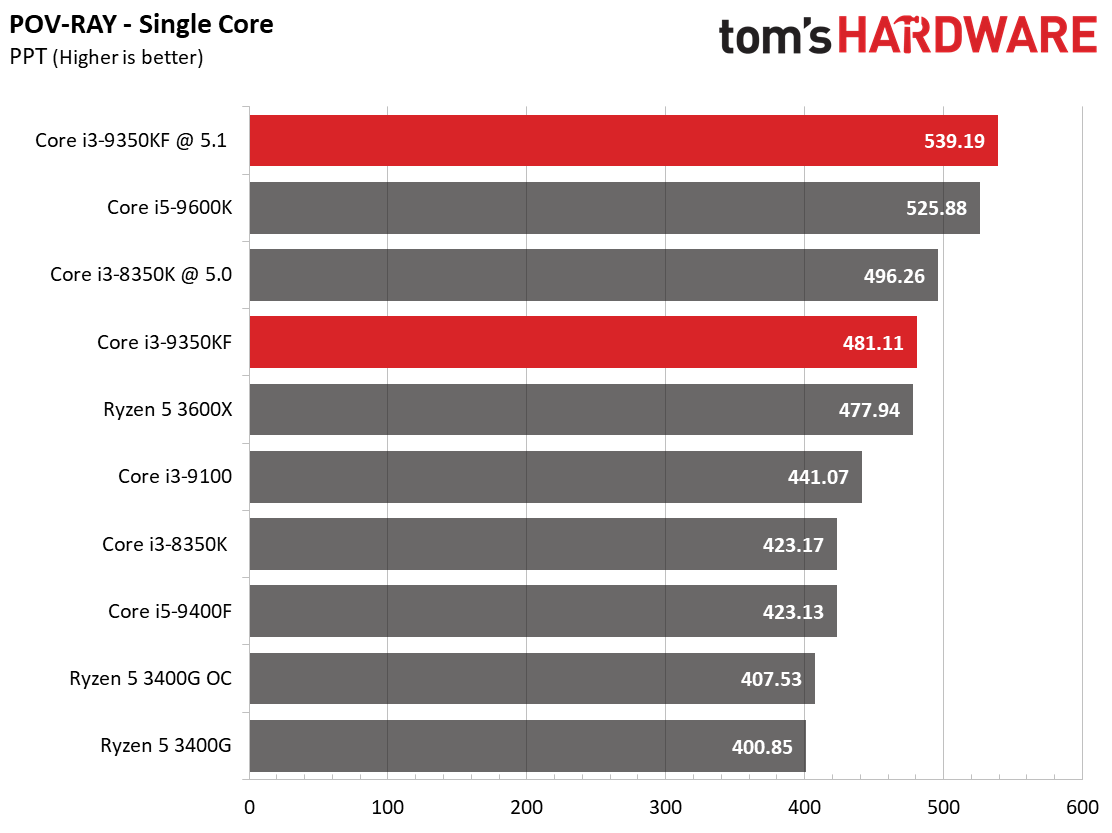
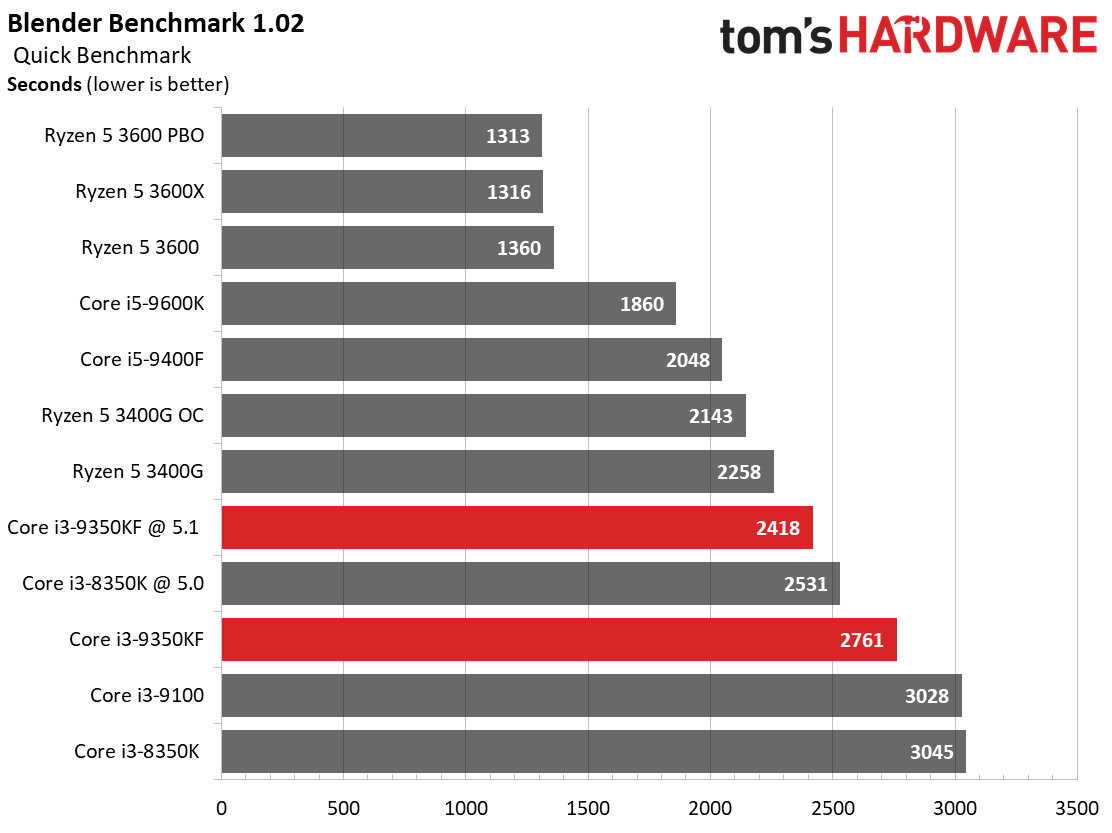
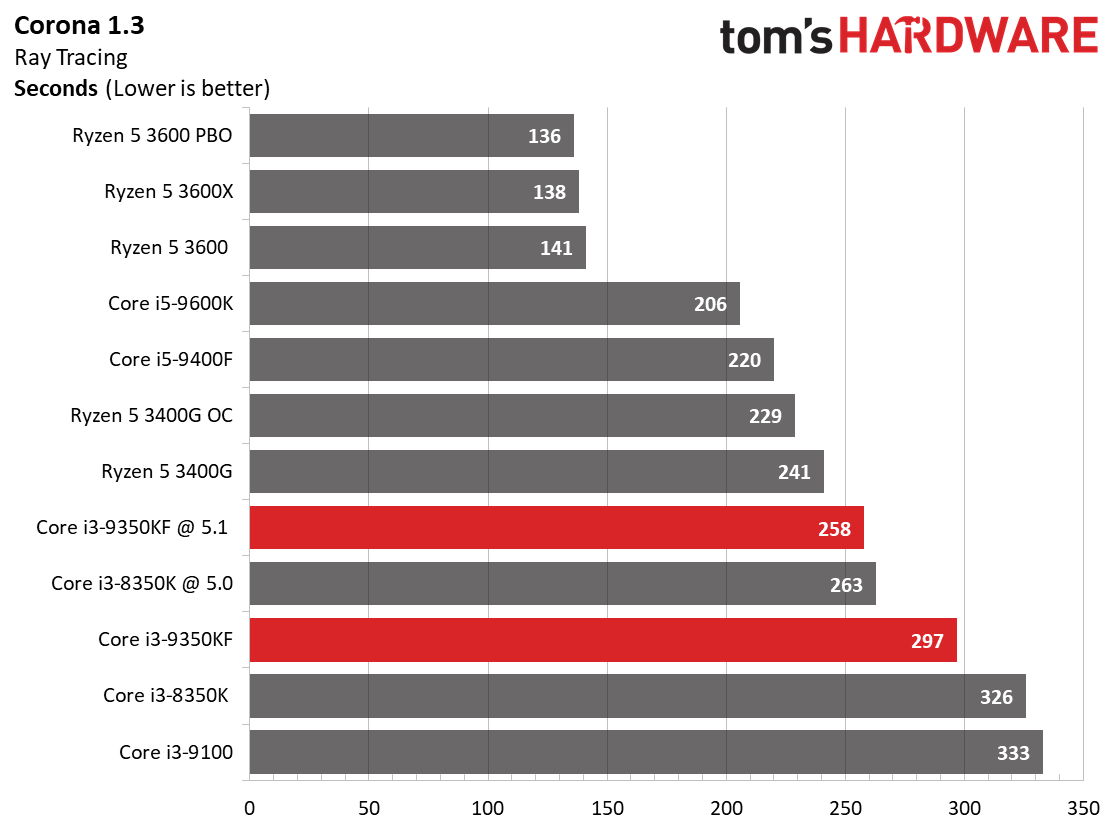
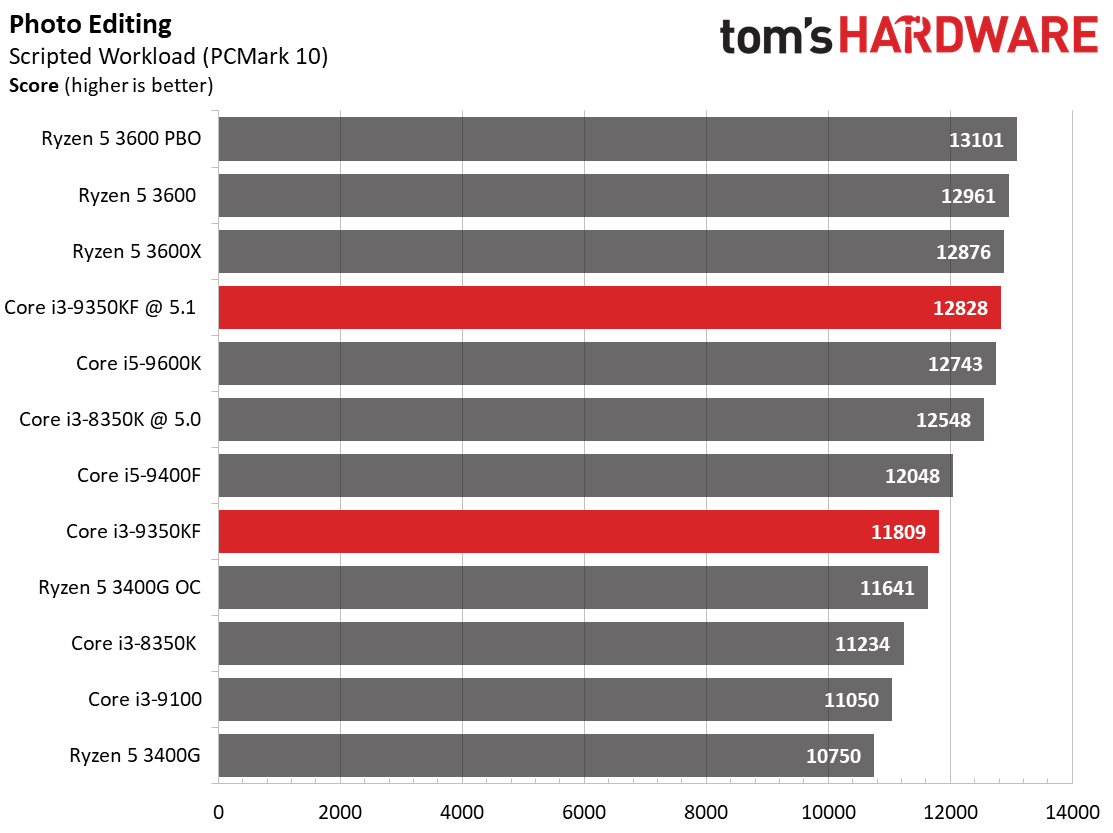
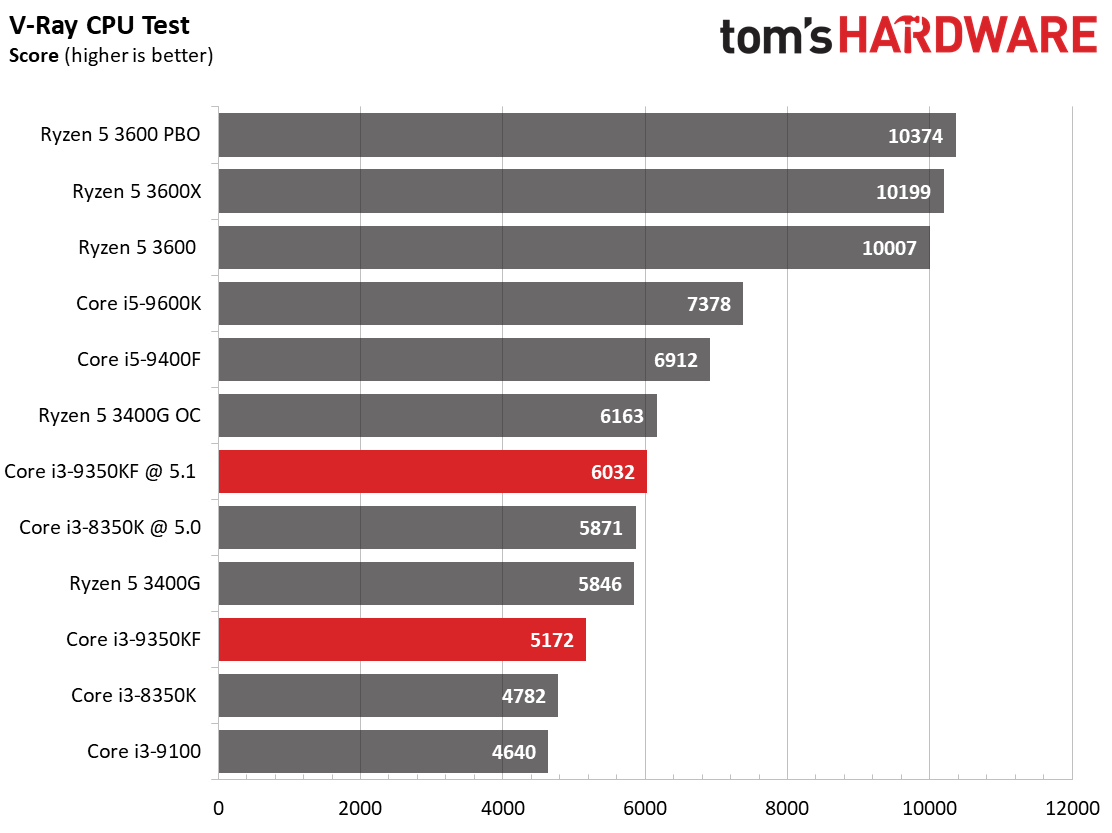
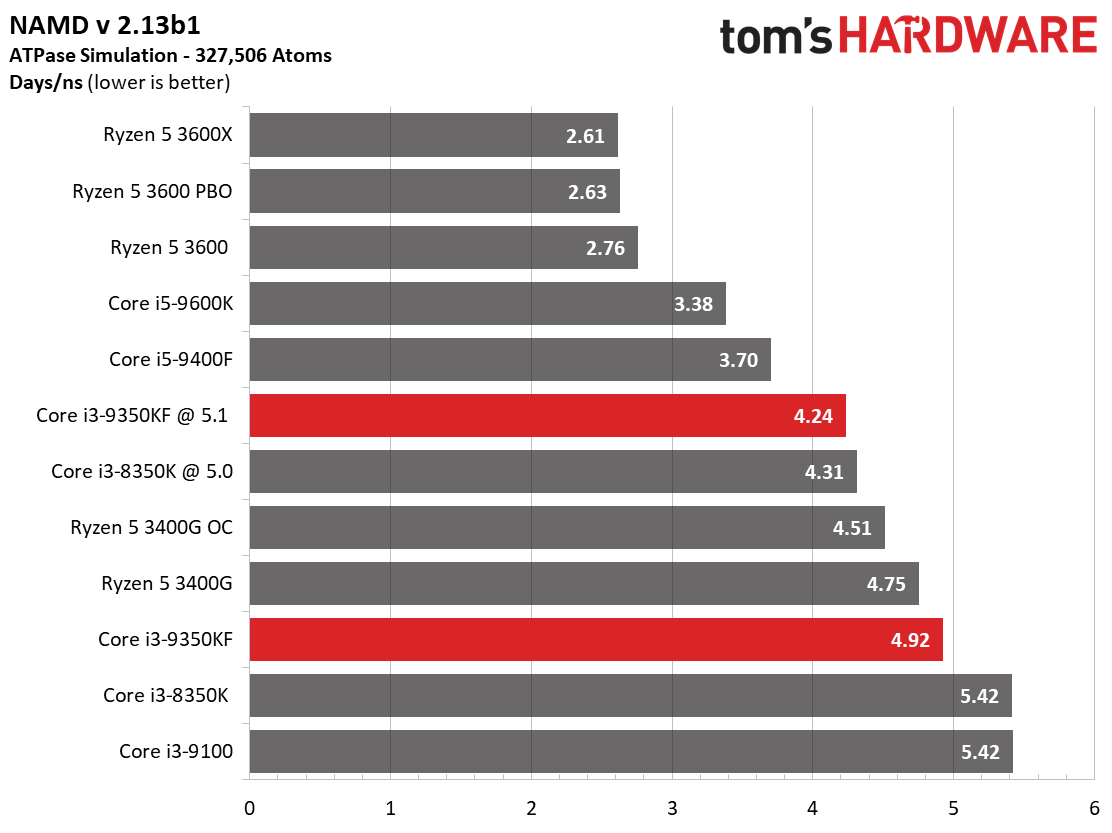
Heavily-threaded rendering applications remain Ryzen's stomping ground due to the hefty allotment of threads and cores that easily outstrip Intel's Core i3-9350KF. AMD's first-gen Zen architecture (3400G) often leads the 9350KF in threaded tests, while the third-gen Ryzen 5 3600X and 3600 models take convincing wins. That picture changes when we switch to single-threaded rendering tests, with the Core i3-9350KF taking the lead by virtue of its higher clock rates.
Encoding
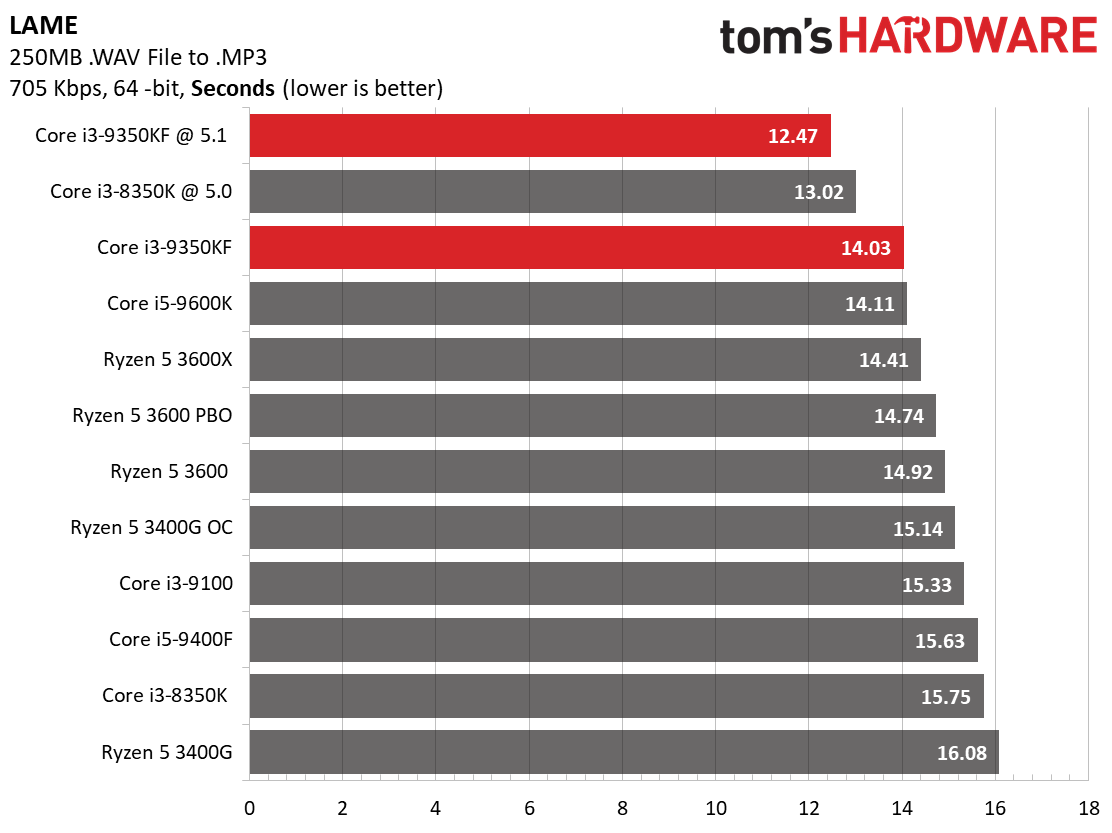
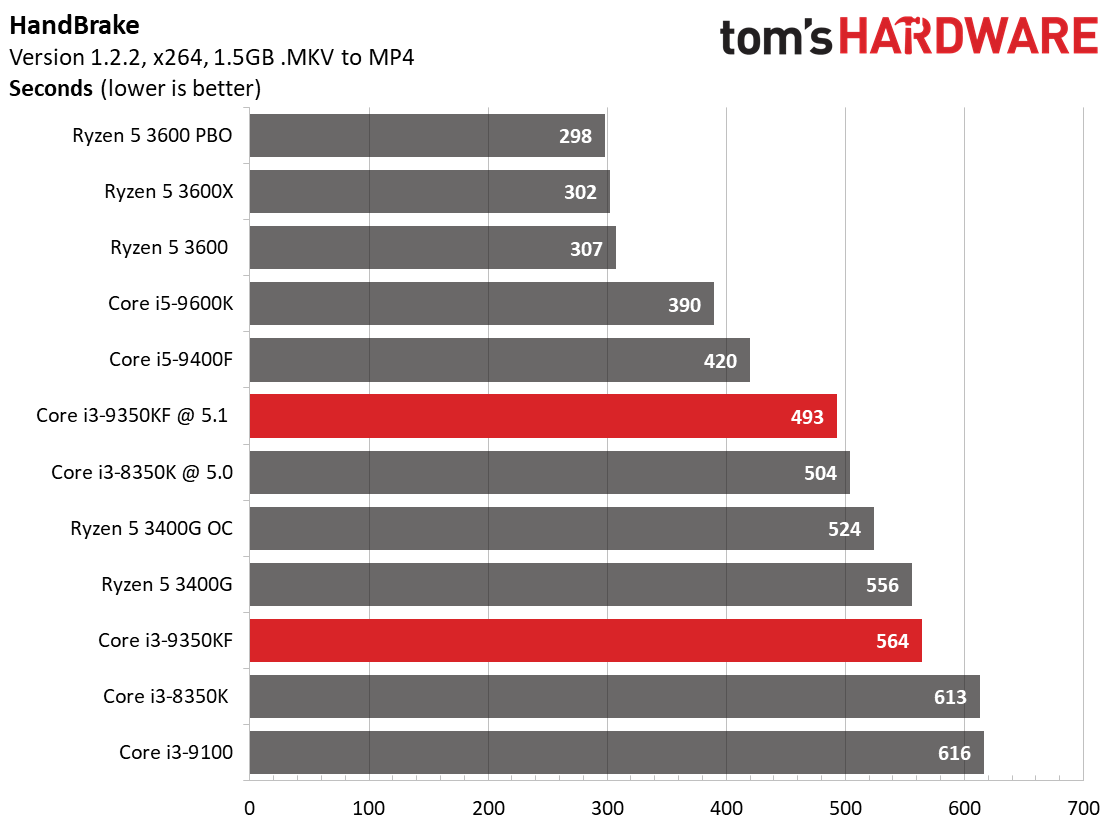
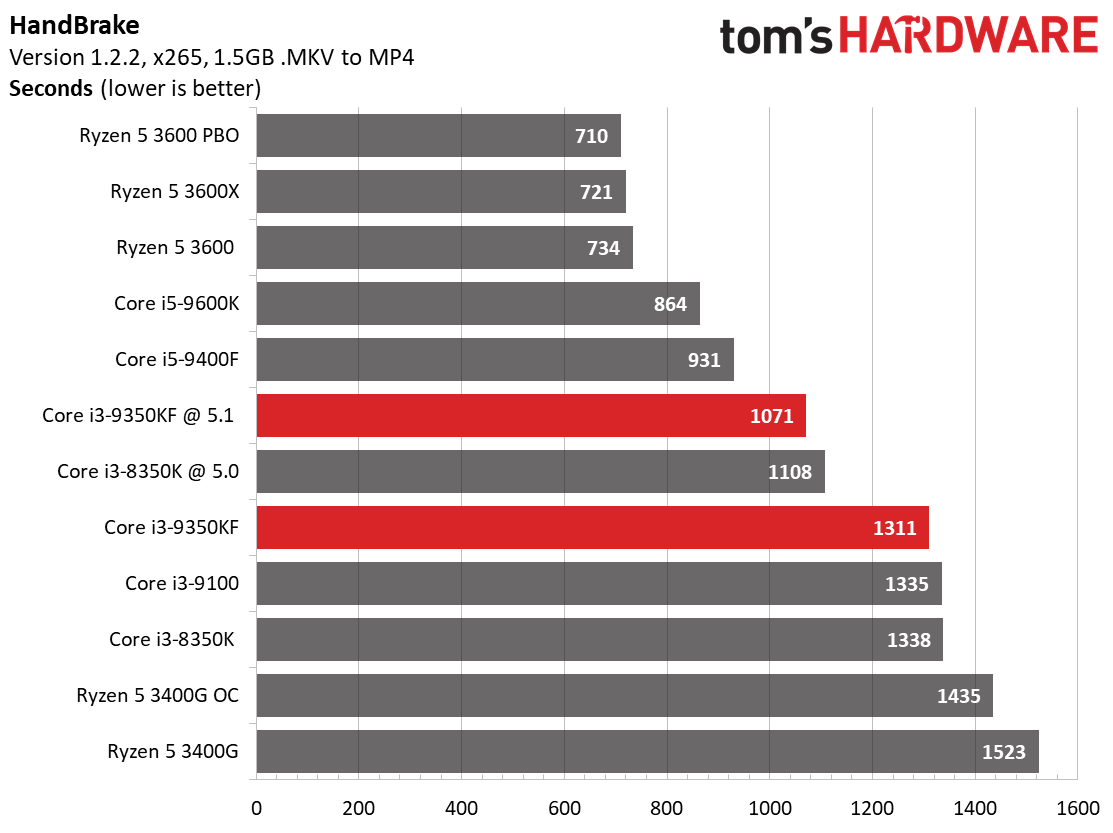
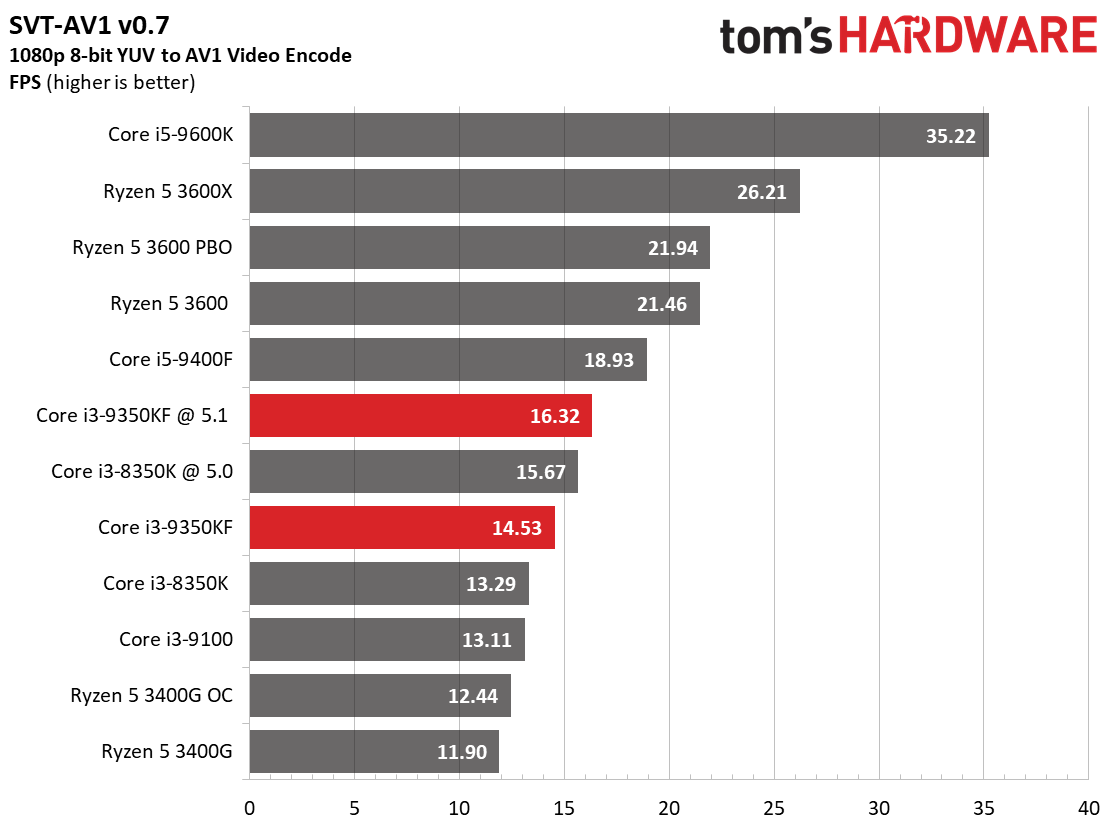
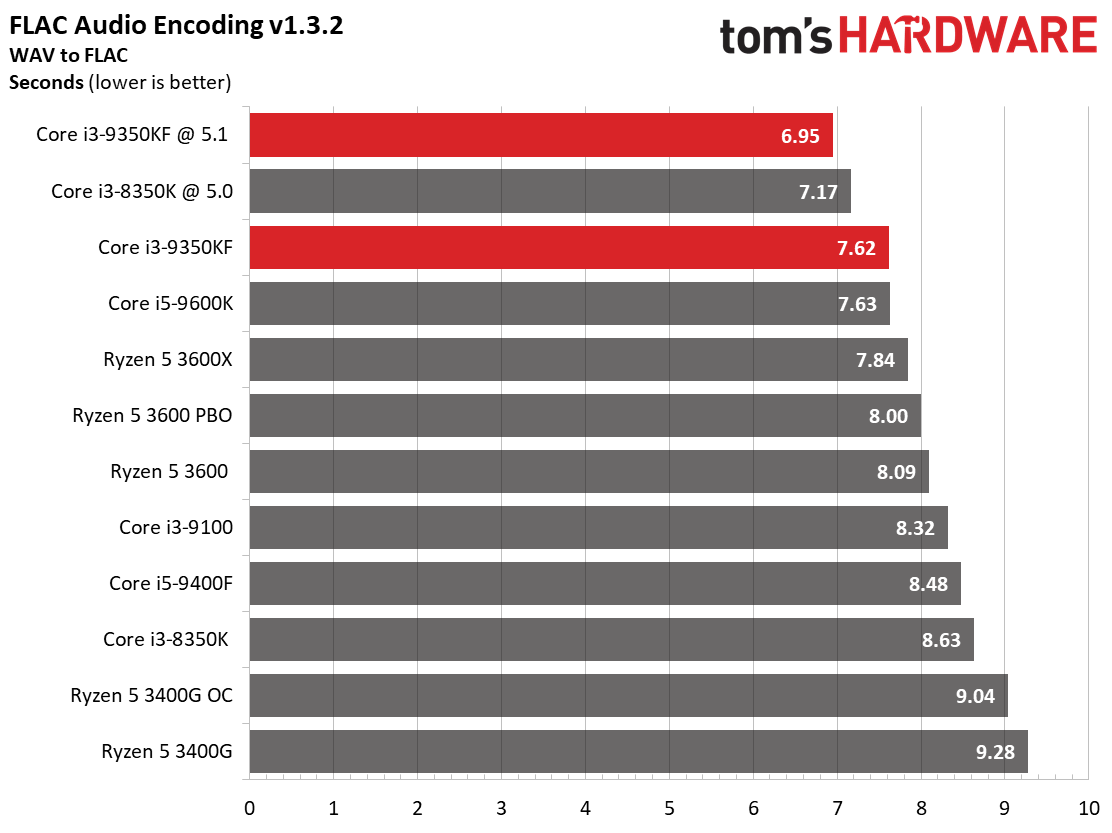
The Intel/Netflix-designed SVT-AV1 video encoder leverages Ryzen's threaded horsepower to great effect, giving the third-gen Ryzen processors a commanding lead, but the Ryzen 5 3400G doesn't fare as well in this series of tests. Flipping through to the single-threaded LAME encoder results reveal that Intel still holds the advantage with encoders that prize per-core performance. Given the emergence of threaded encoders, that victory is a bit shallow.
AMD has made tremendous progress with its AVX processing performance in threaded workloads, which is evident in the HandBrake tests in both x264 and x265 flavors. The x265 test uses a heavier distribution of AVX instructions, and we can see the massive difference between the Zen 2 Ryzen 5 3600/X and the Ryzen 5 3400G that comes with the first-gen Zen architecture.
Web Browser
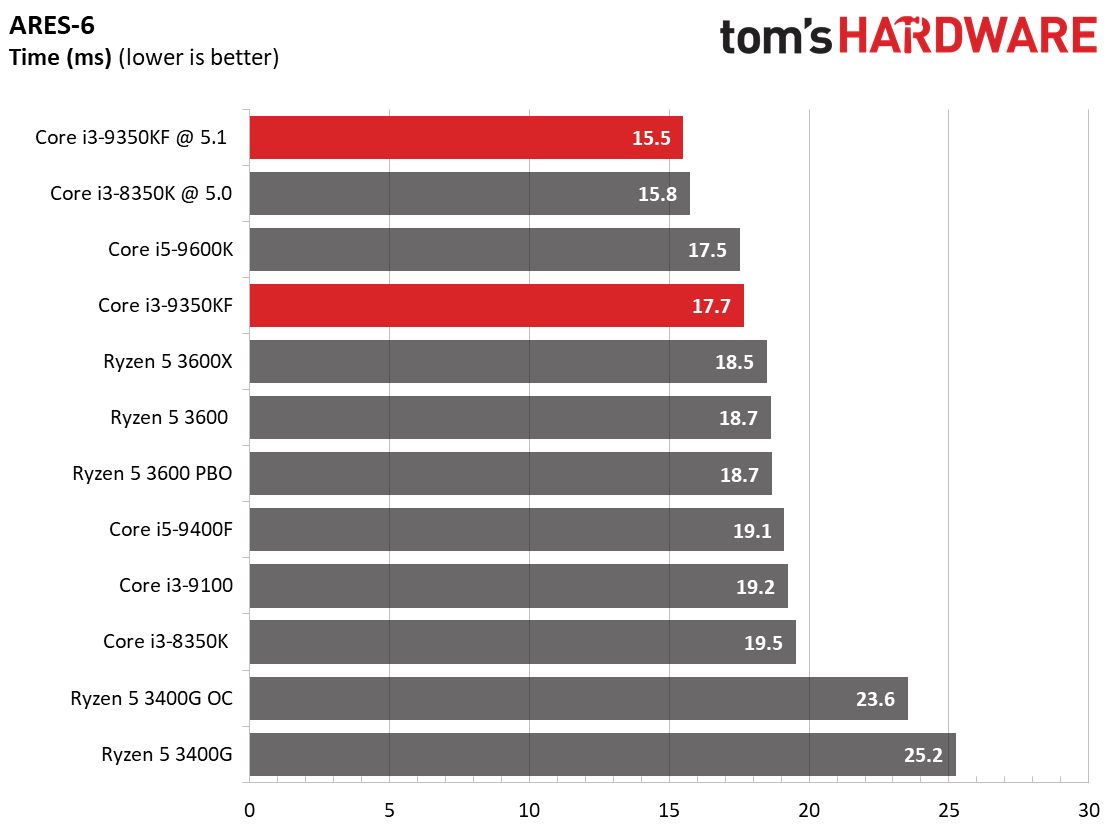
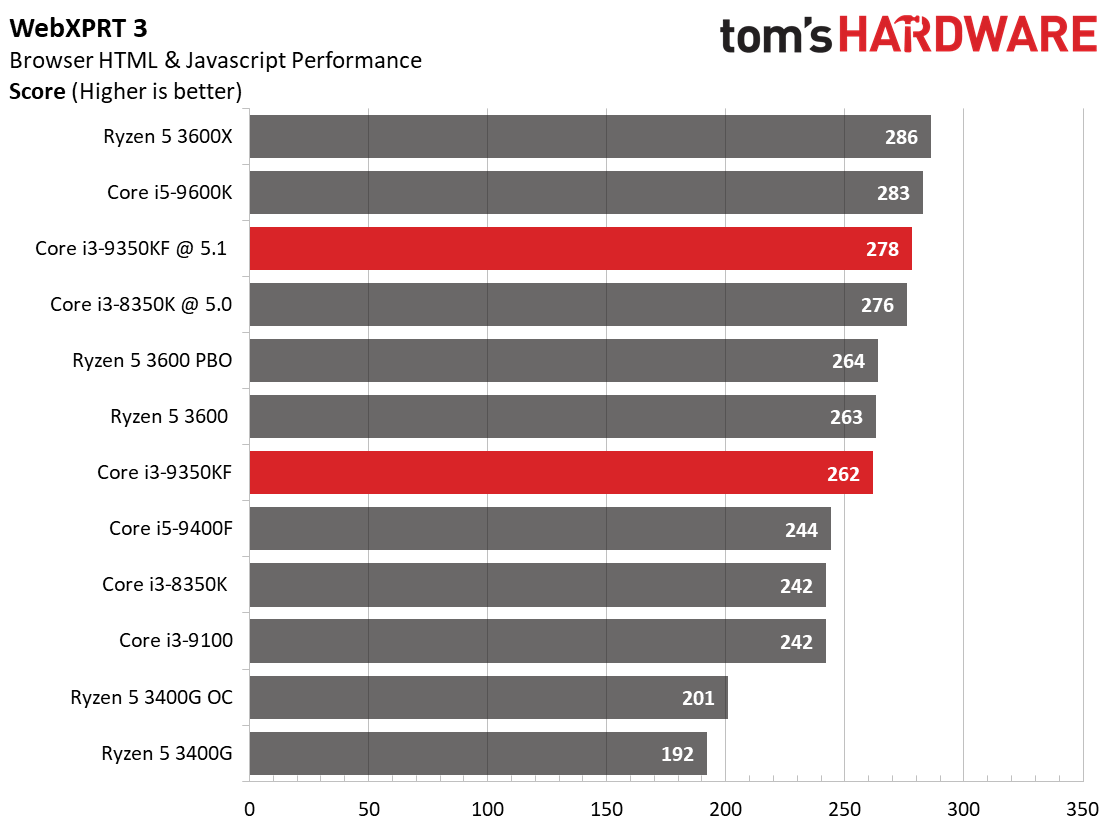
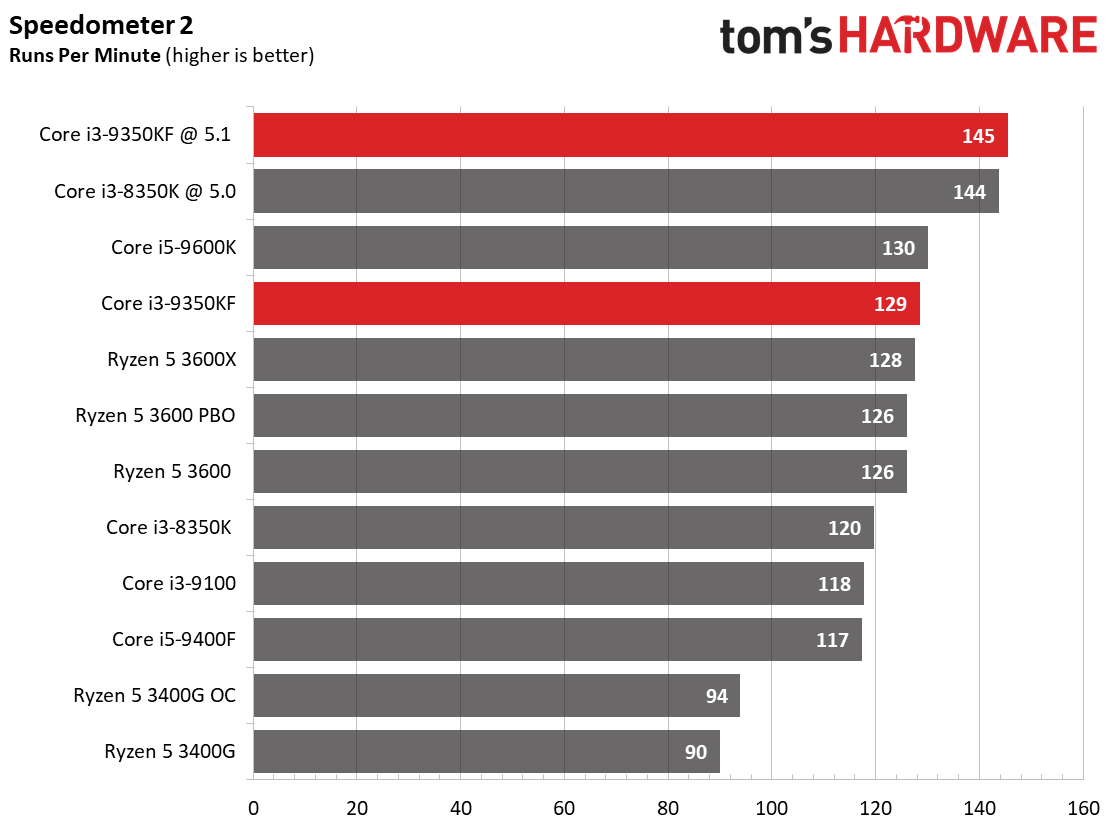
Browsers tend to be impacted more by the recent security mitigations than other types of applications, so Intel has generally taken a haircut in these benchmarks of fully-patched systems, though that handicap doesn't stop Intel from sweeping the competition.
The ARES-6 web browser benchmark focuses on forward neural networks used for machine learning tasks, along with overall browser responsiveness. The Ryzen 5 3400G suffers during this test as it falls to the bottom of the char, but the Ryzen 5 3600/X models grapple with Intel's stock Core i3-9350K. Tuning the Intel processor affords it the pole position as it barely edges its previous-gen counterpart our for the lead.
Office and Productivity
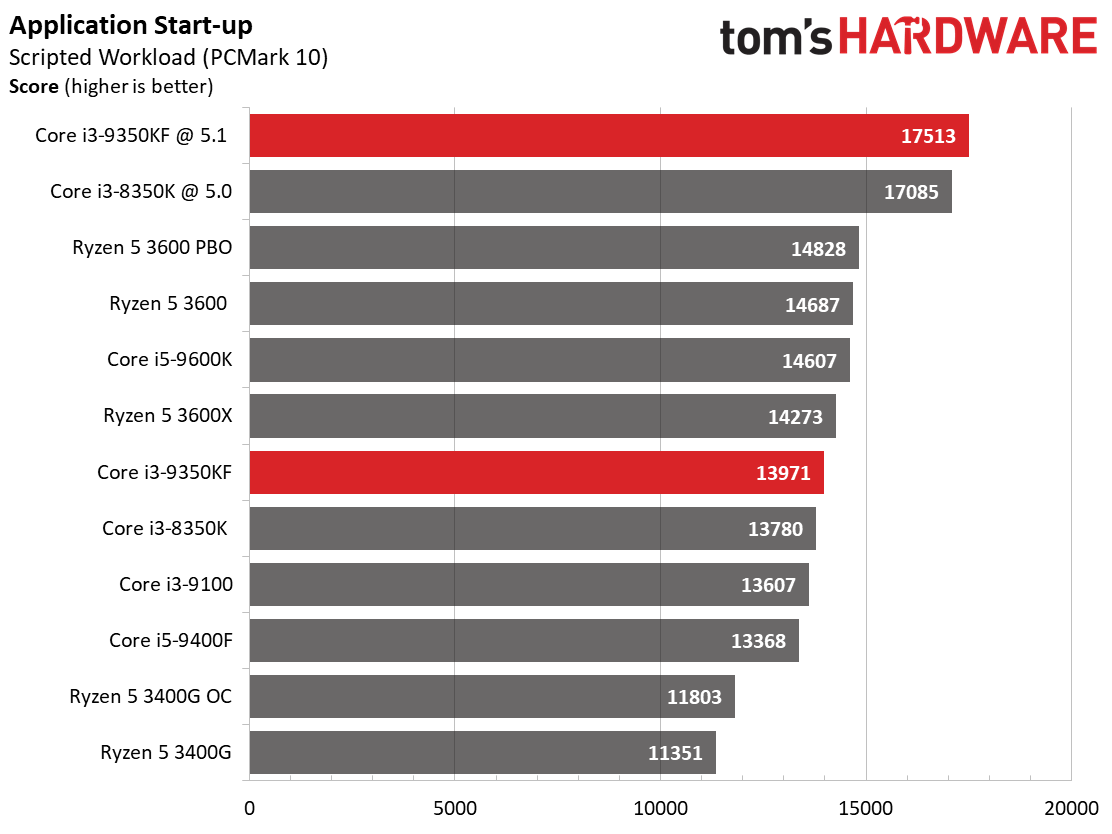
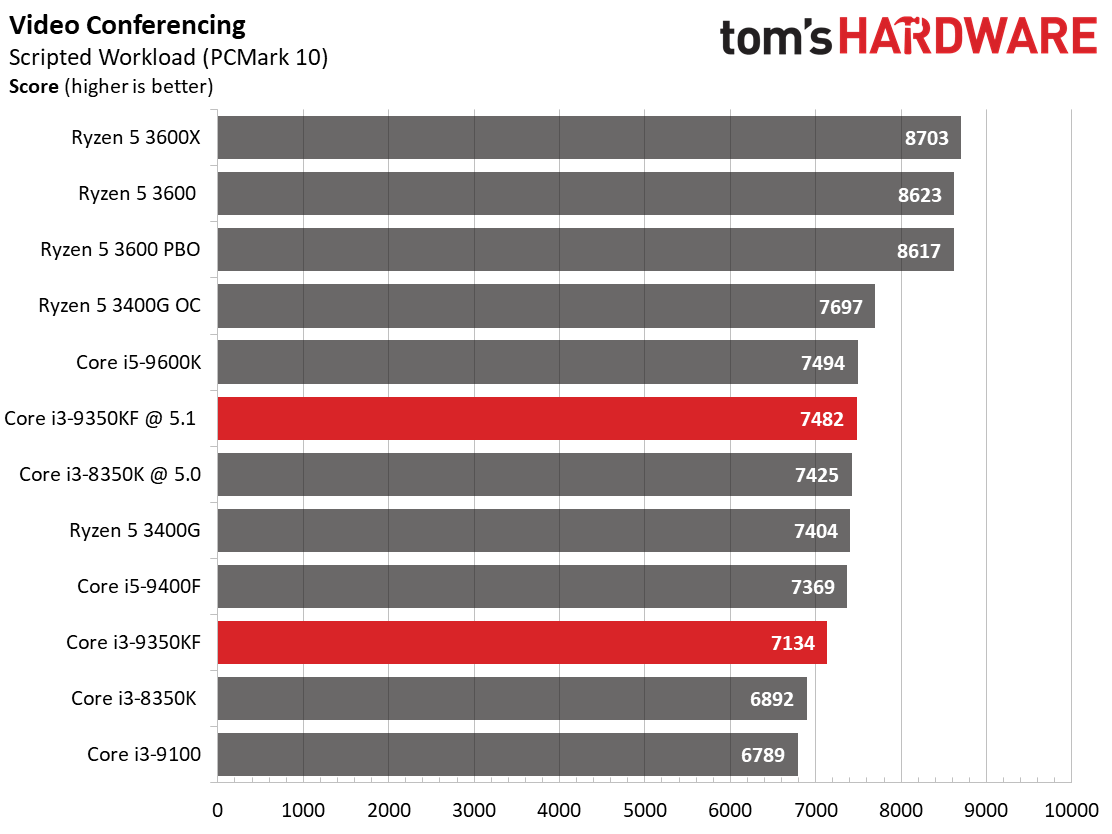
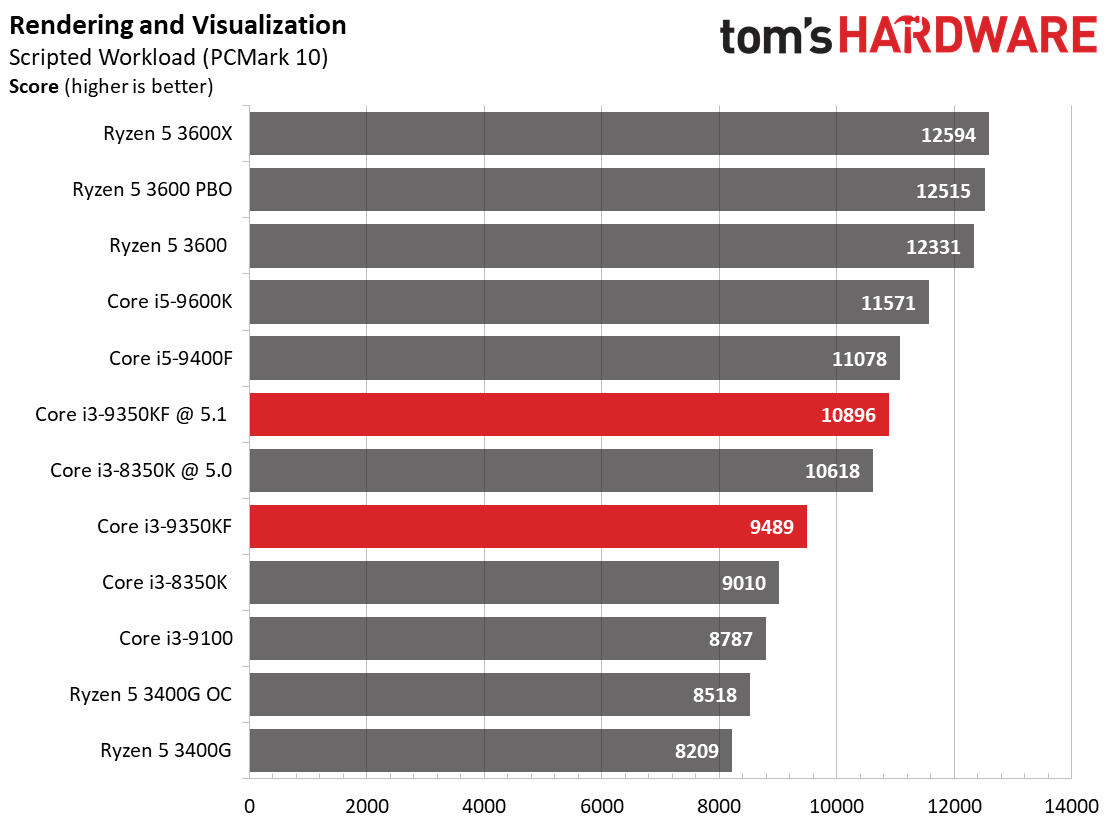
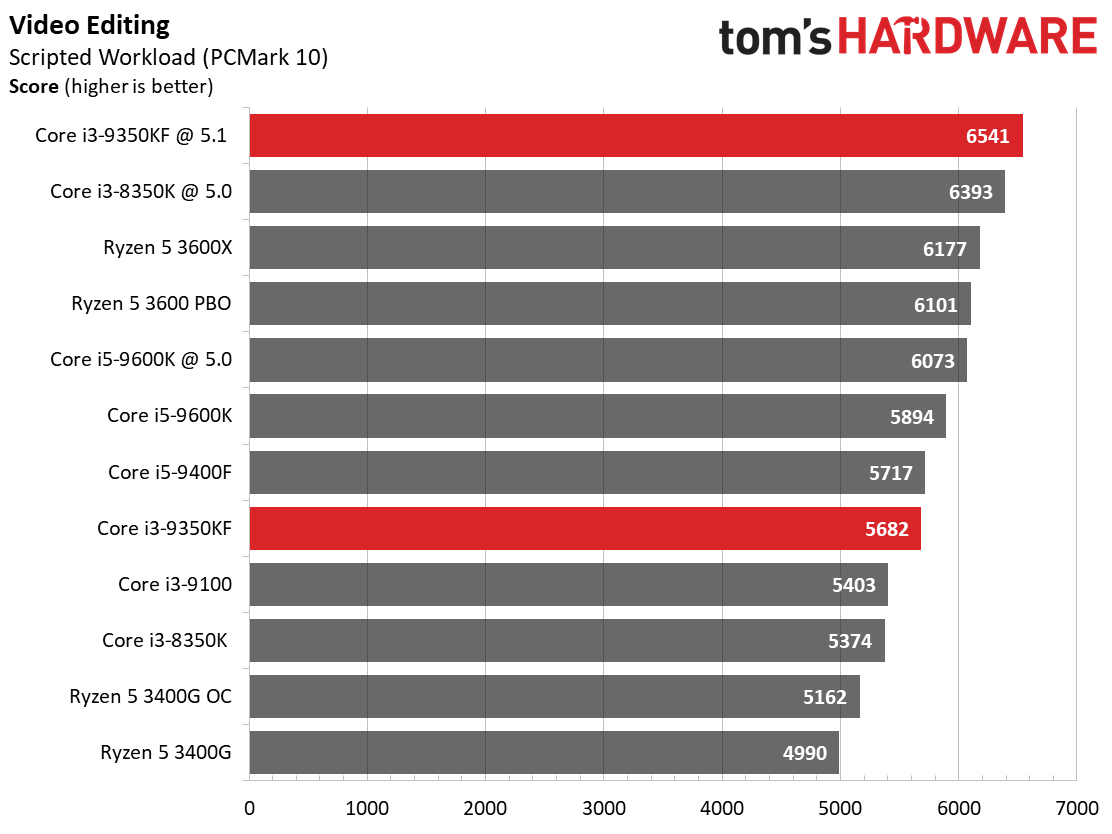
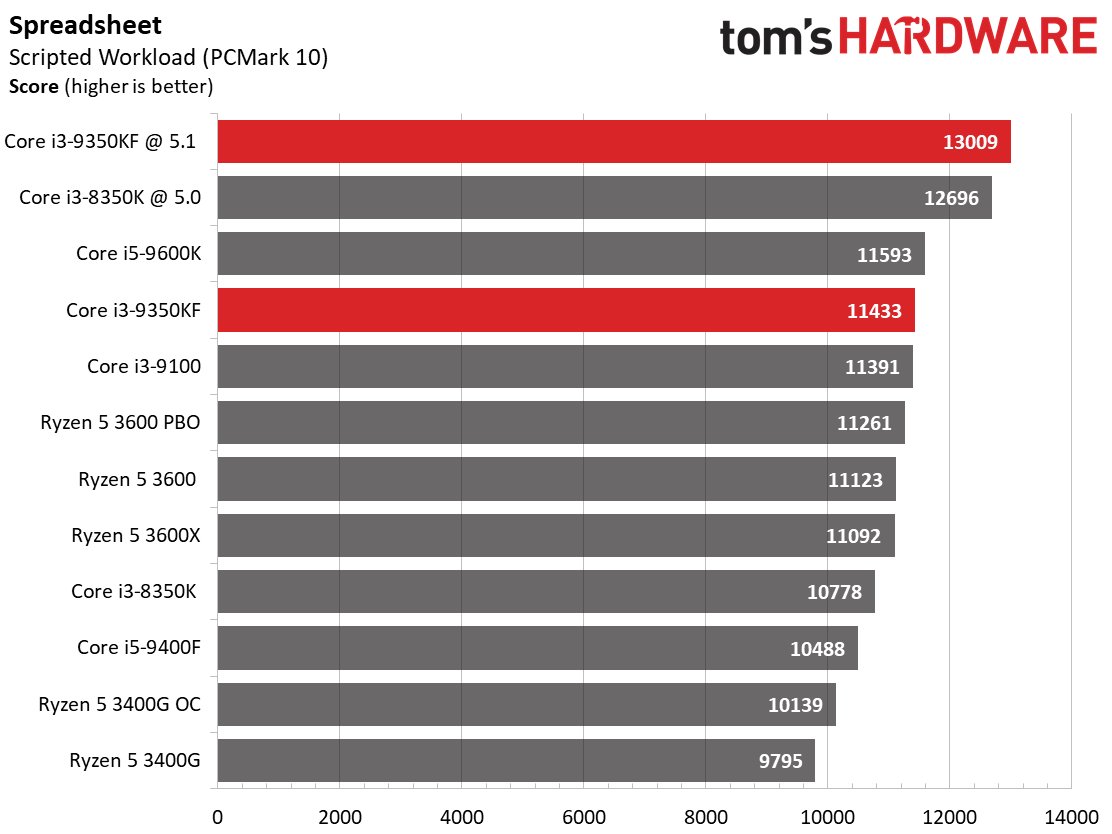
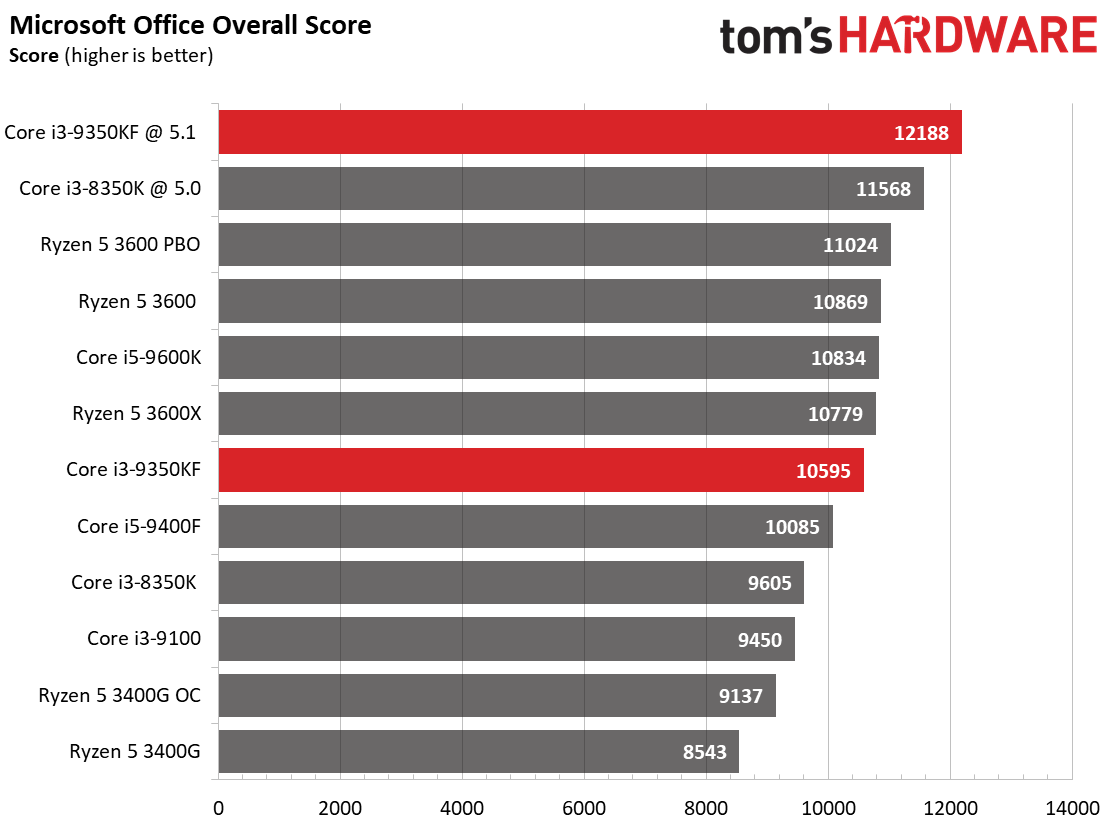
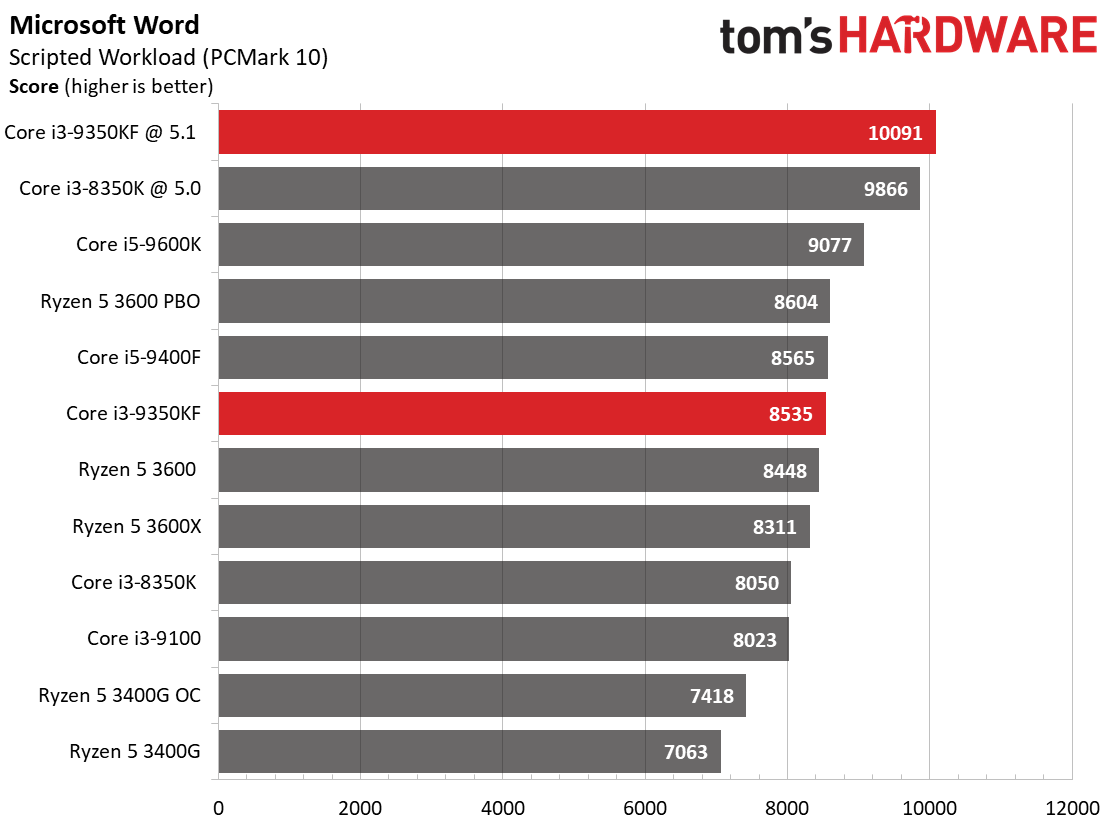
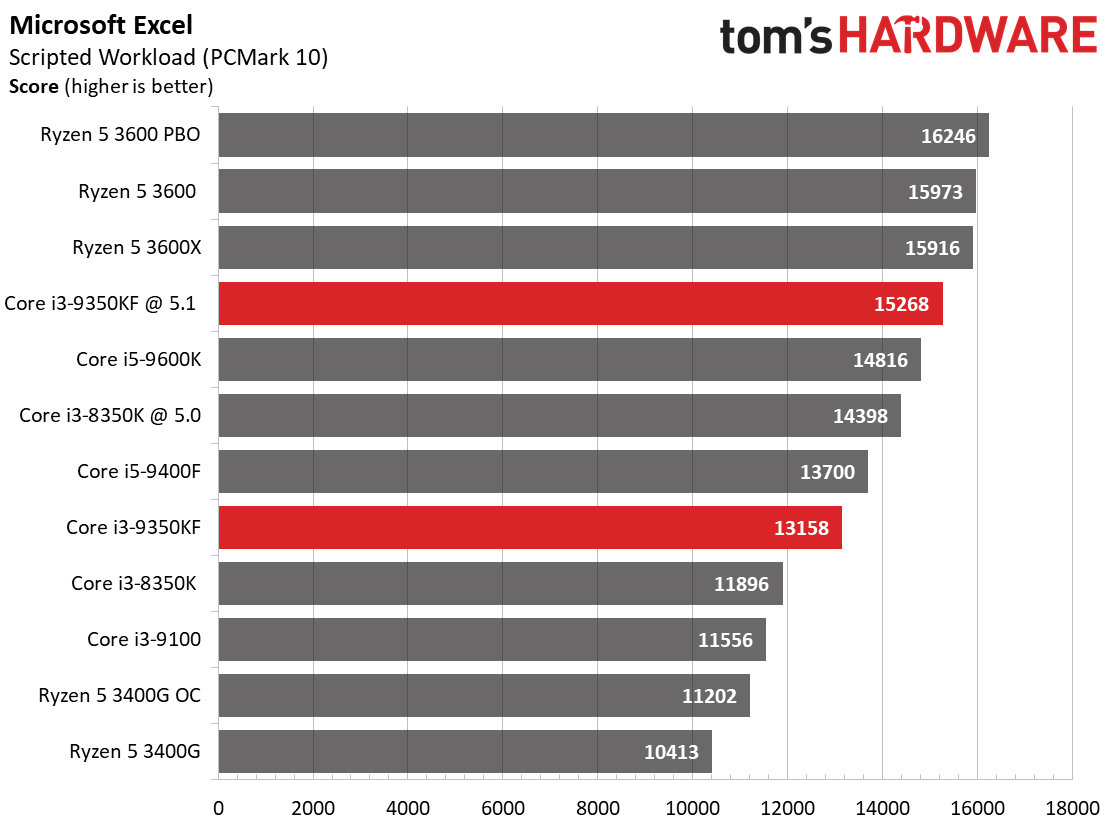
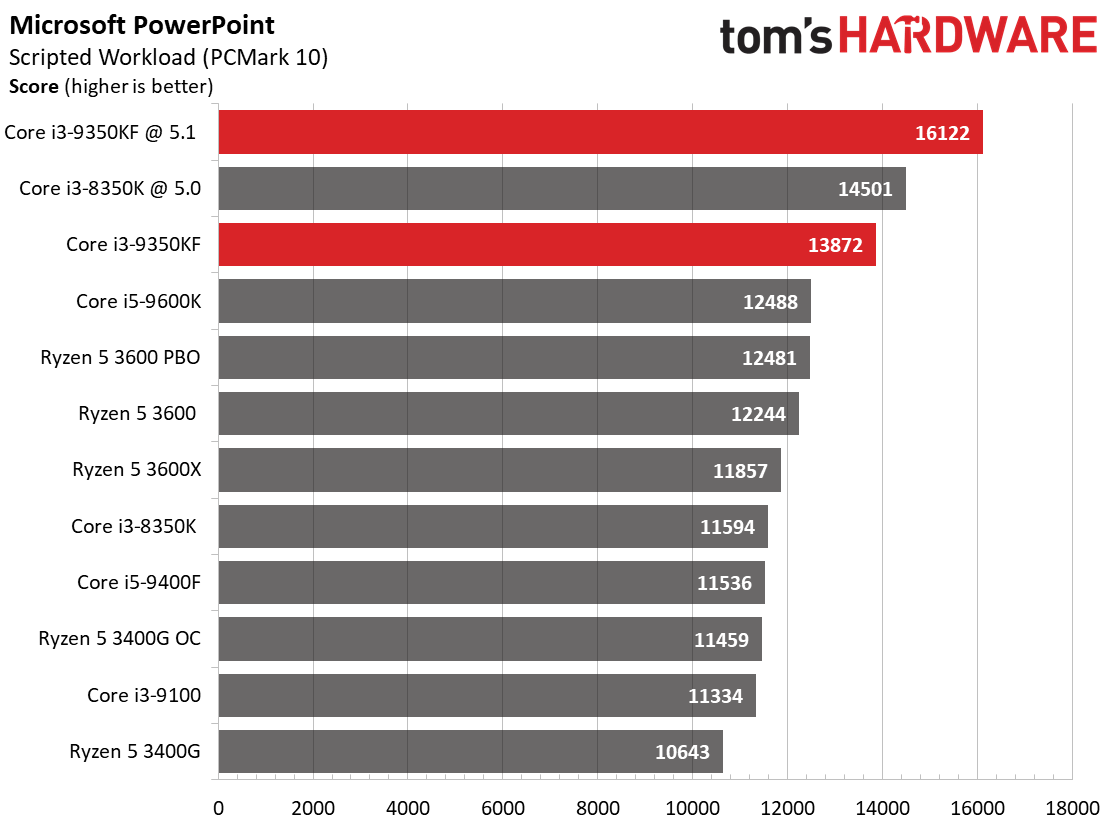
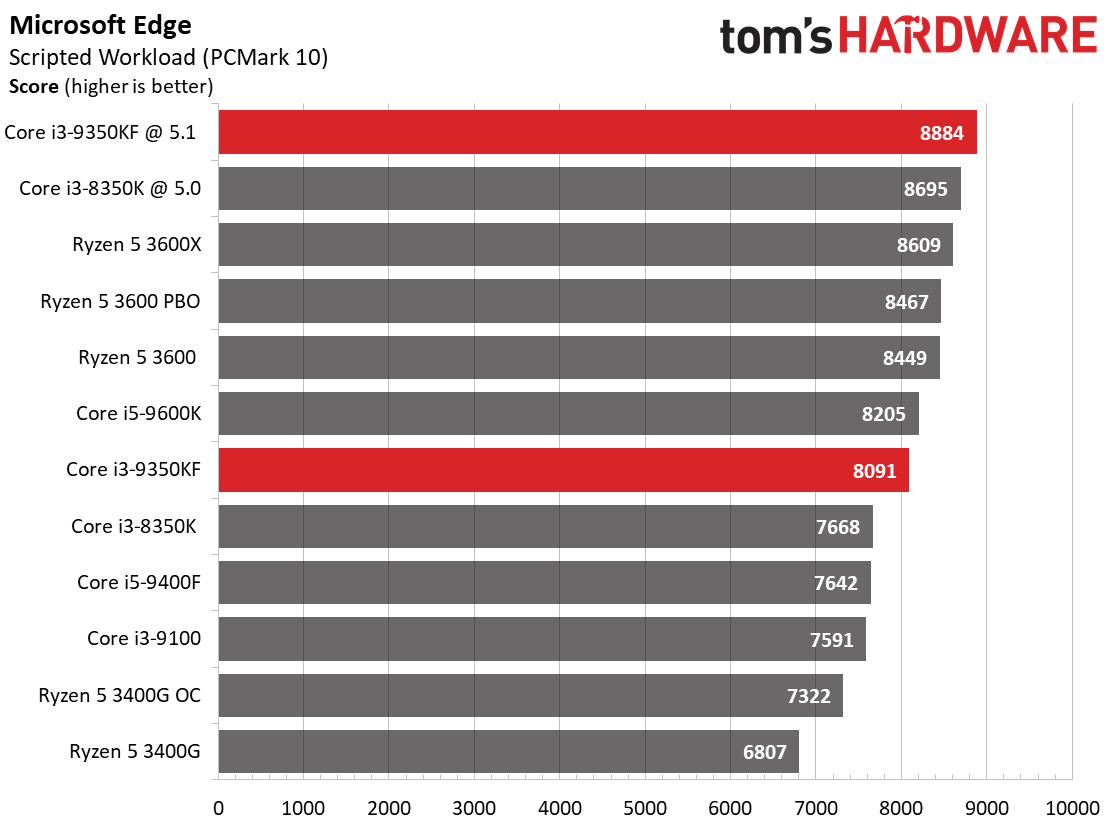
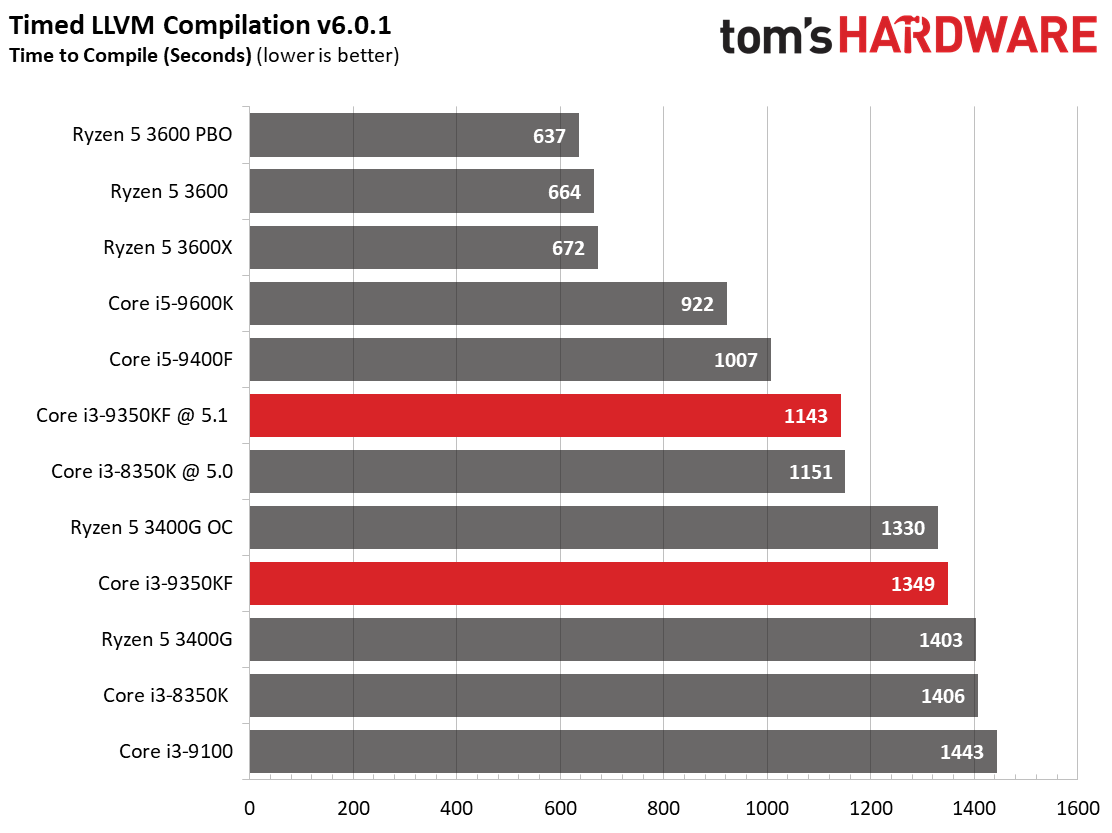
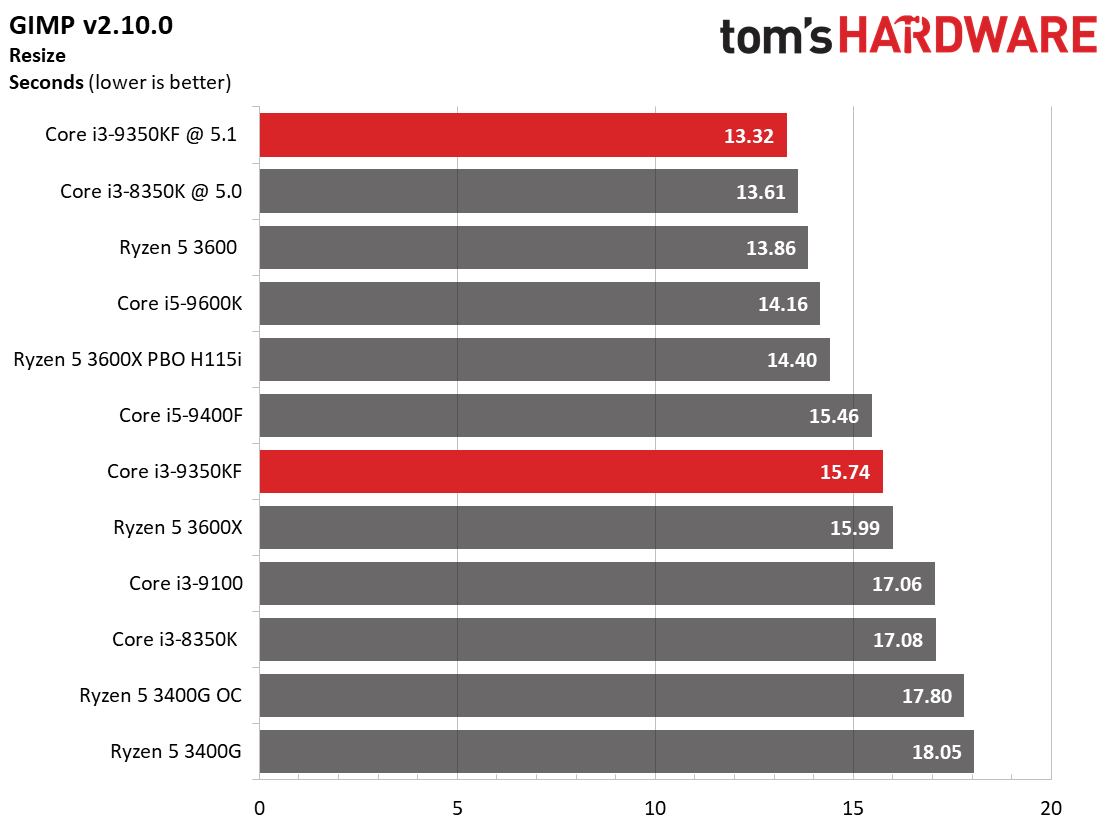
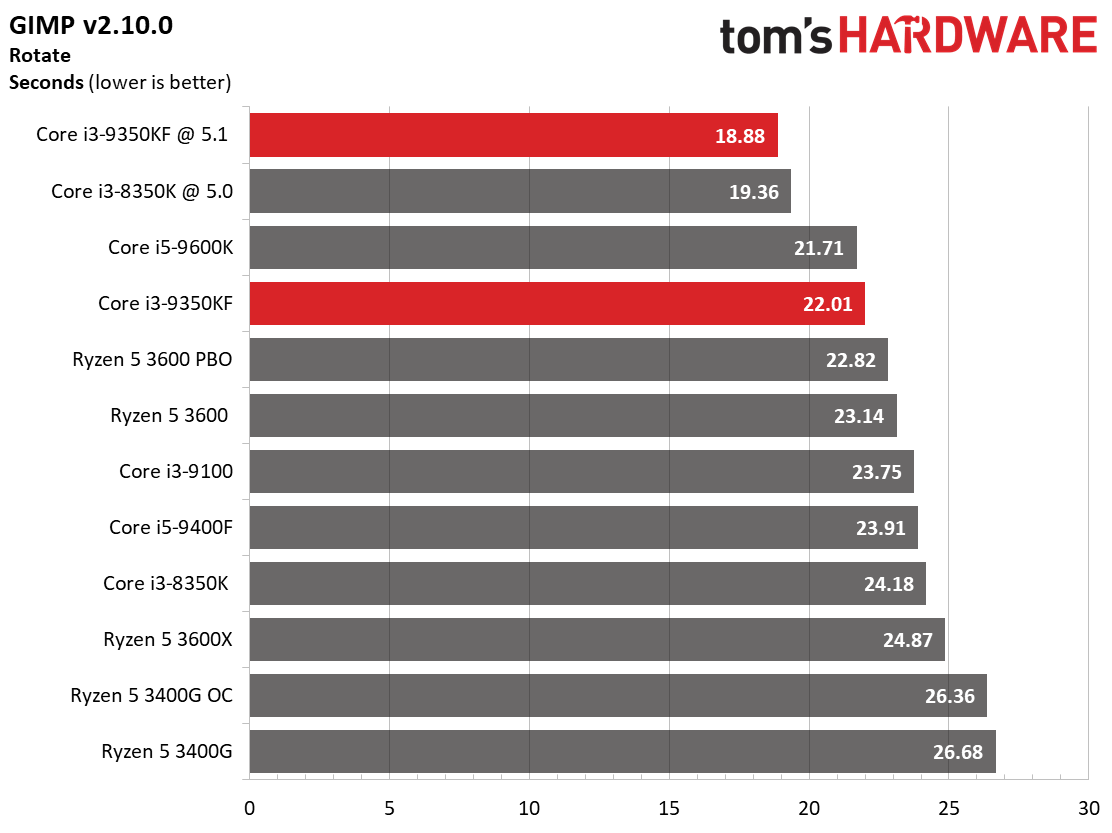
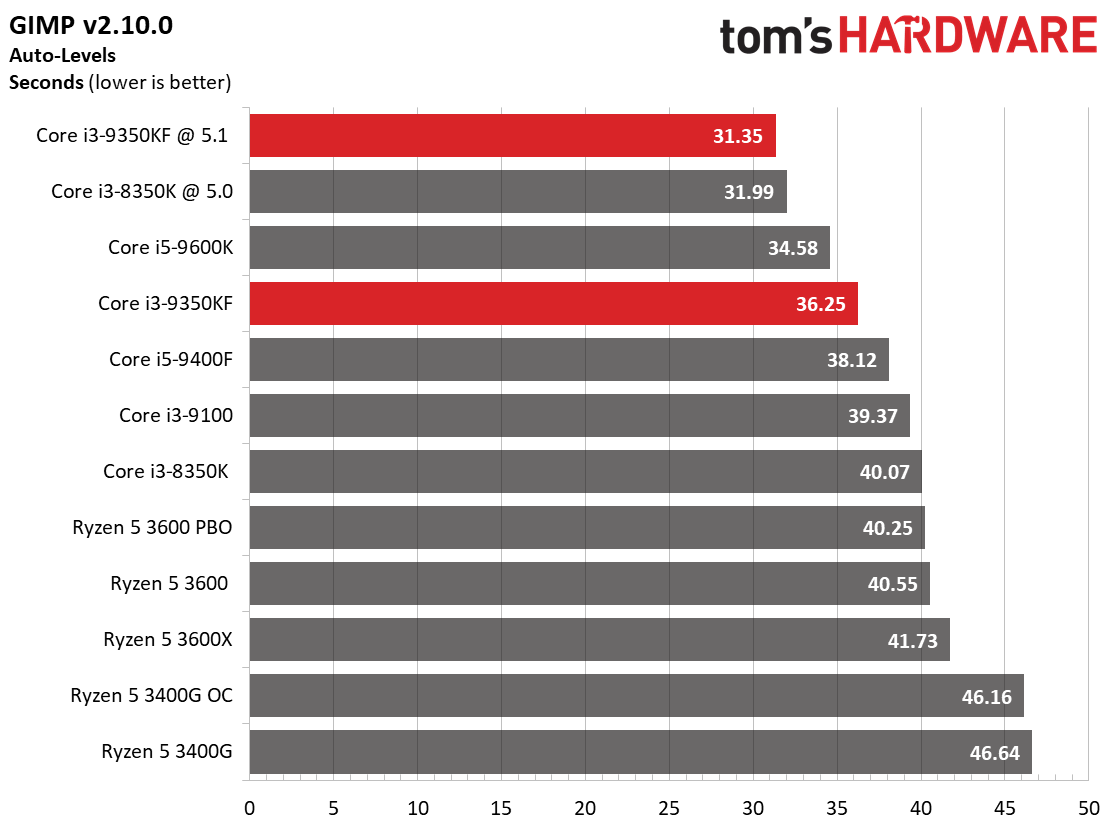
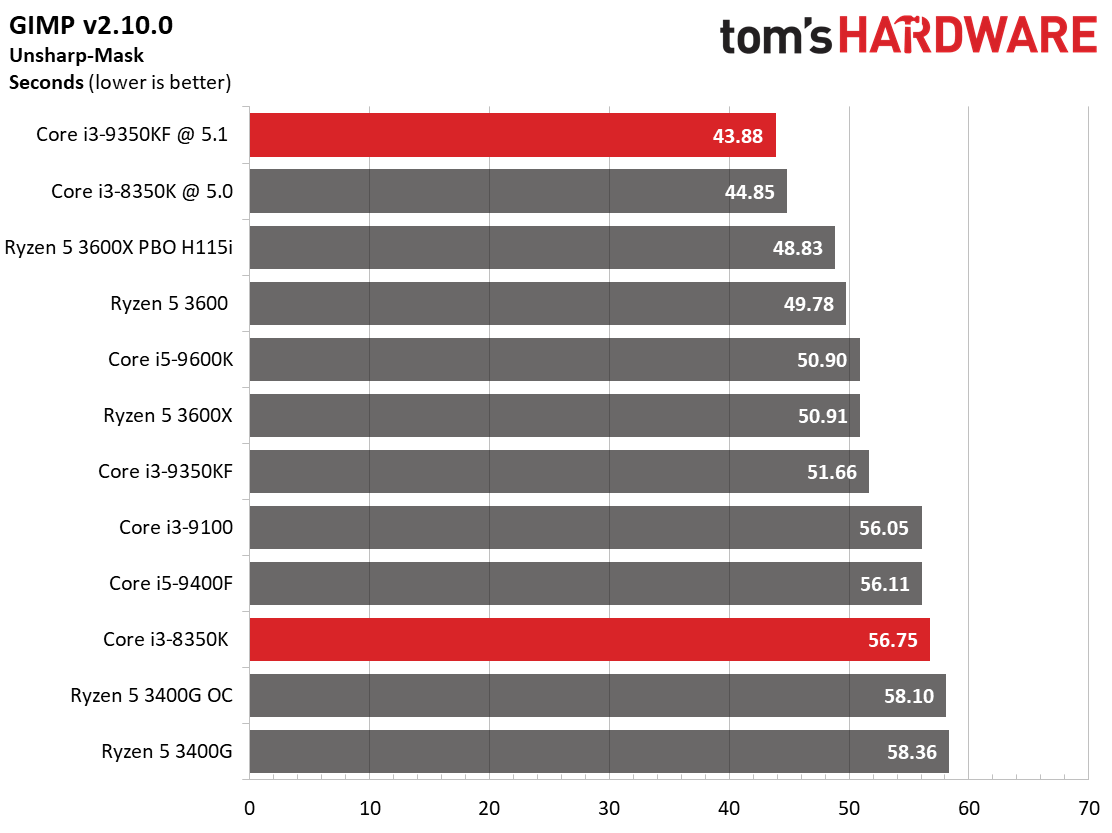
Microsoft's office suite runs via PCMark 10's new application test. This benchmark tests with real Microsoft Office applications. The Ryzen 3000 series processors are competitive, but the Core i5-9350KF takes the overall win after tuning. Much of that strength stems from its higher clock rate, but the third-gen Ryzen models nearly match the 9350KF at stock settings.
The application start-up metric measures load time snappiness in word processors, GIMP, and Web browsers. Other platform-level considerations affect this test as well, including the storage subsystem. The Core processors trail at stock settings, but take a big lead after overclocking. Adding a PCIe 4.0 SSD to our Ryzen test system would swing this benchmark in favor of the Ryzen 3000-series processors.
Get Tom's Hardware's best news and in-depth reviews, straight to your inbox.
Flipping over to the heavily-threaded Timed LLVM compilation test finds the Ryzen processors back in a workload that can leverage their threaded heft, granting them a large win over the Intel competitors. The Ryzen 5 3400G isn't nearly as agile as its counterparts in this test, but it still challenges the stock Core i3-9350KF.
Compression, Decompression, Encryption, AVX
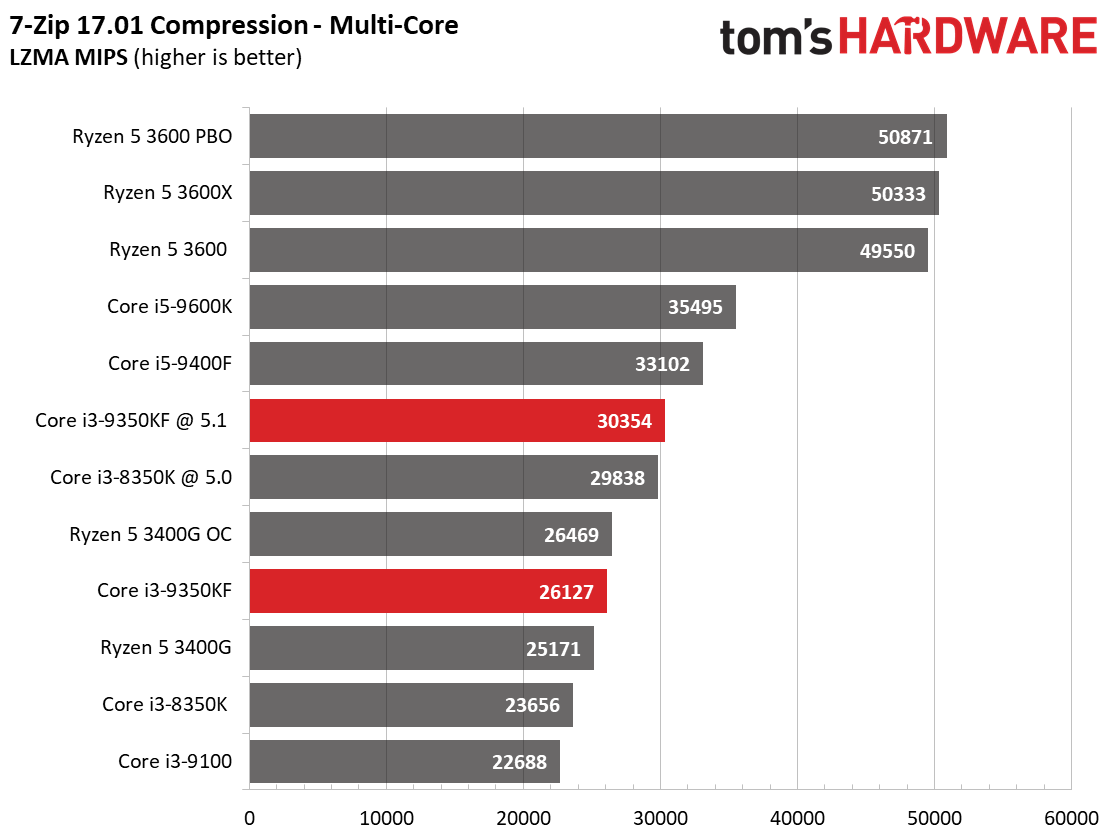
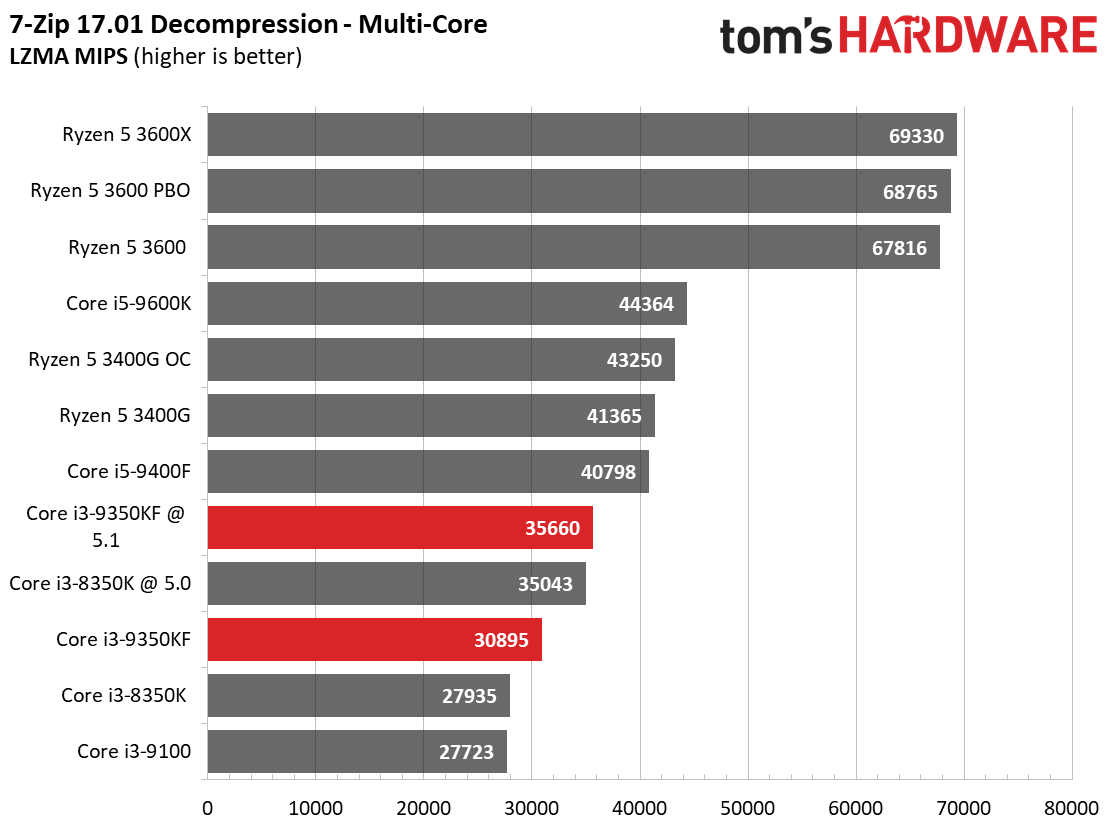
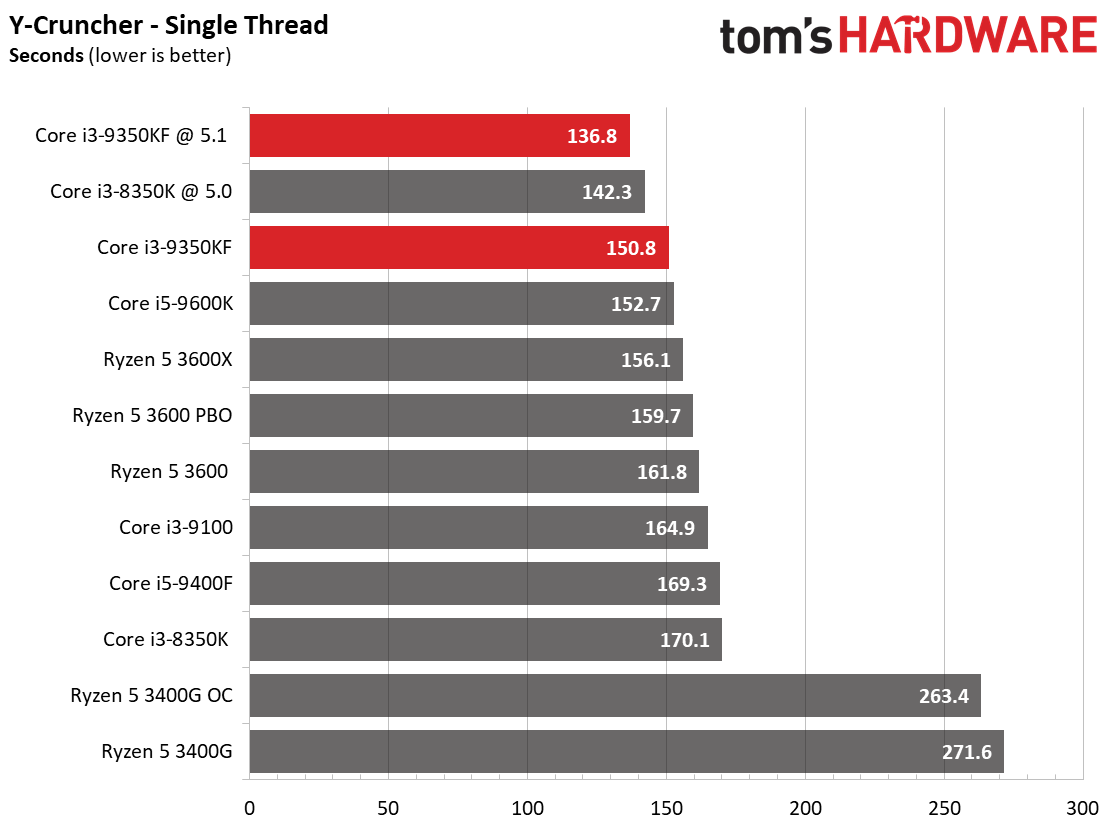
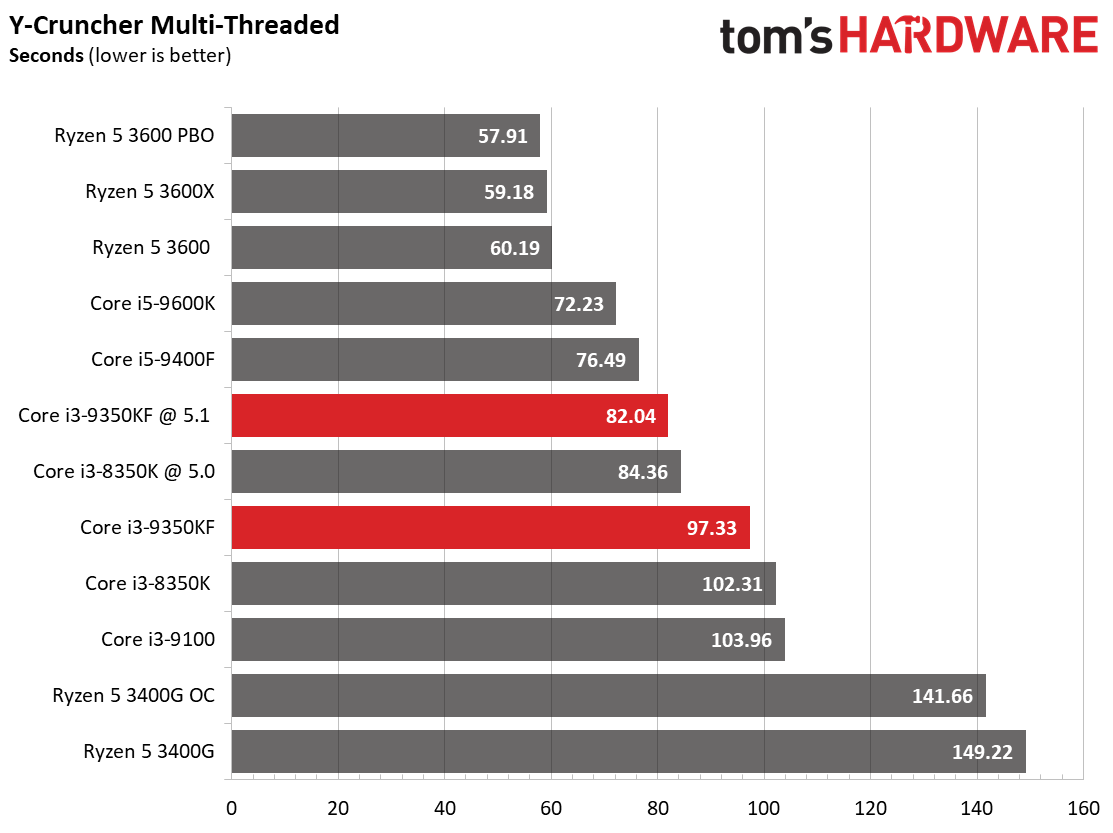
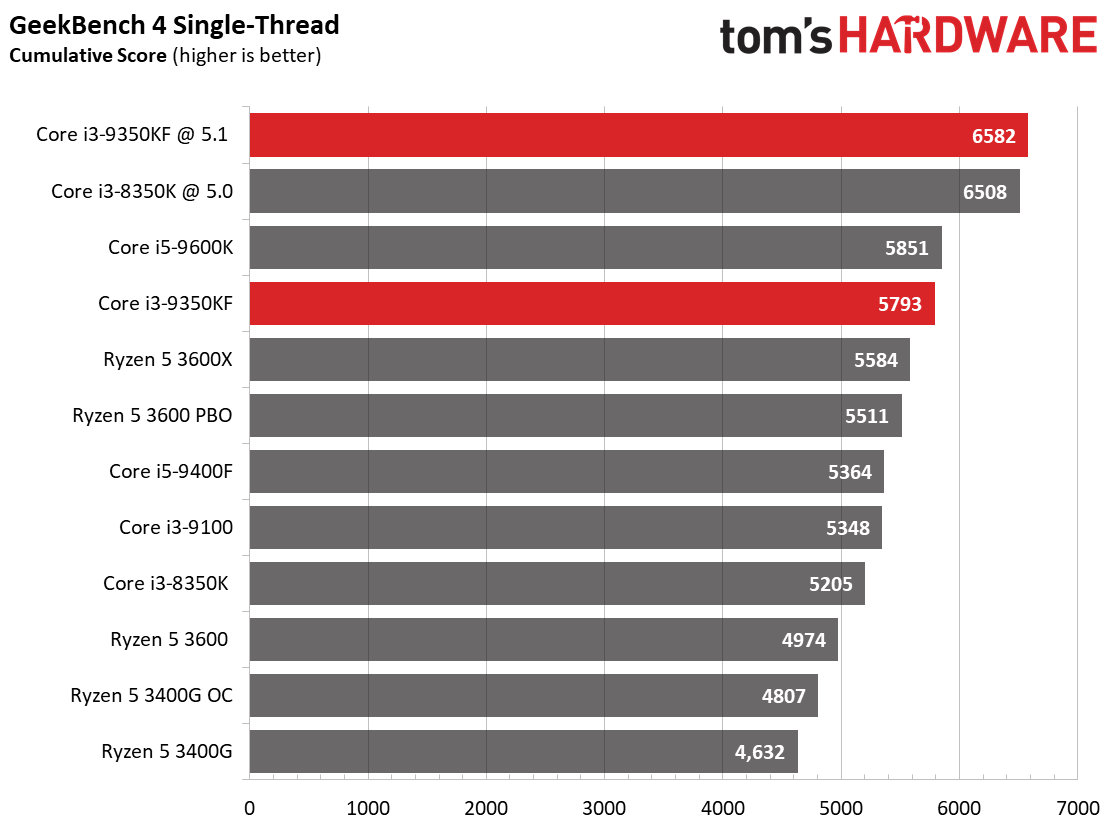
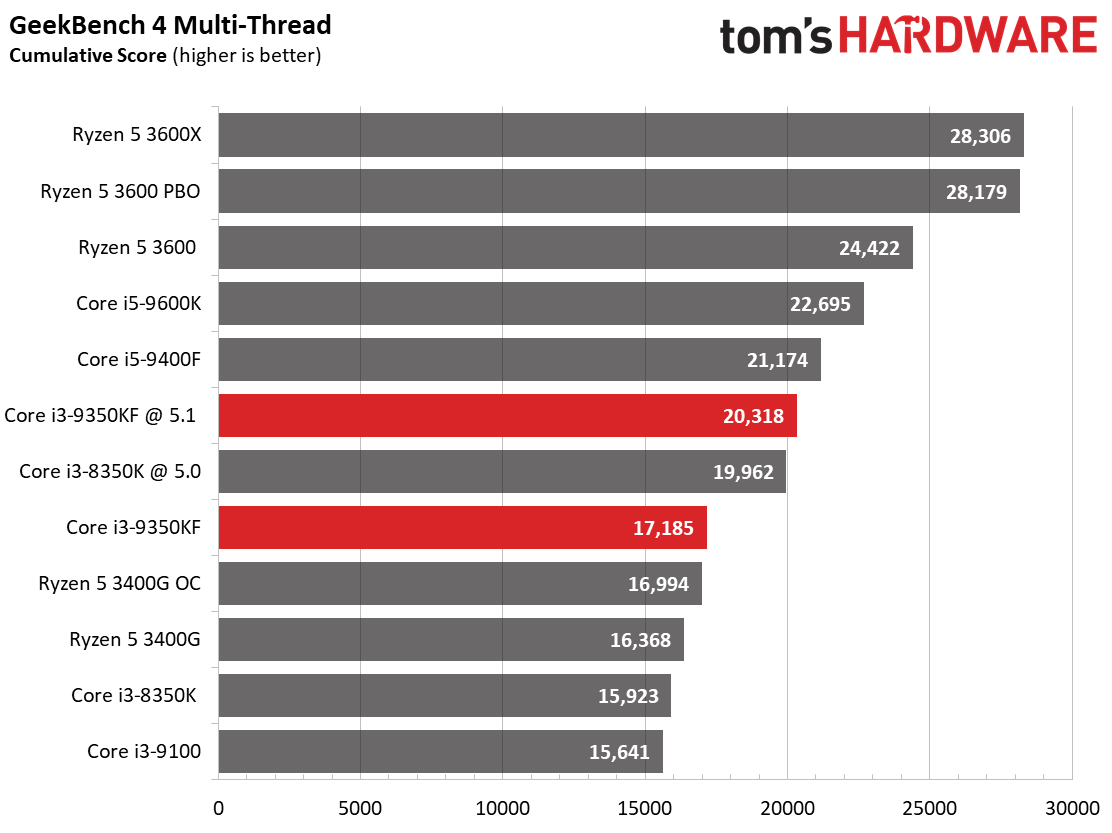
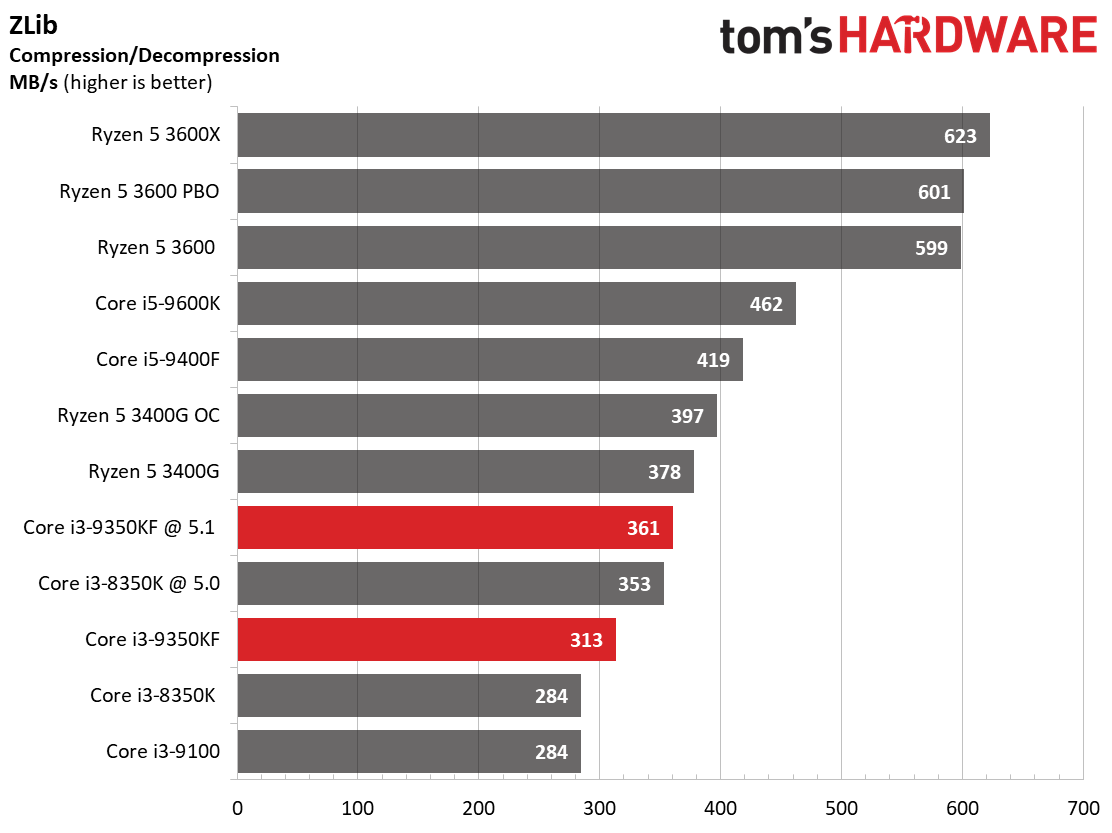
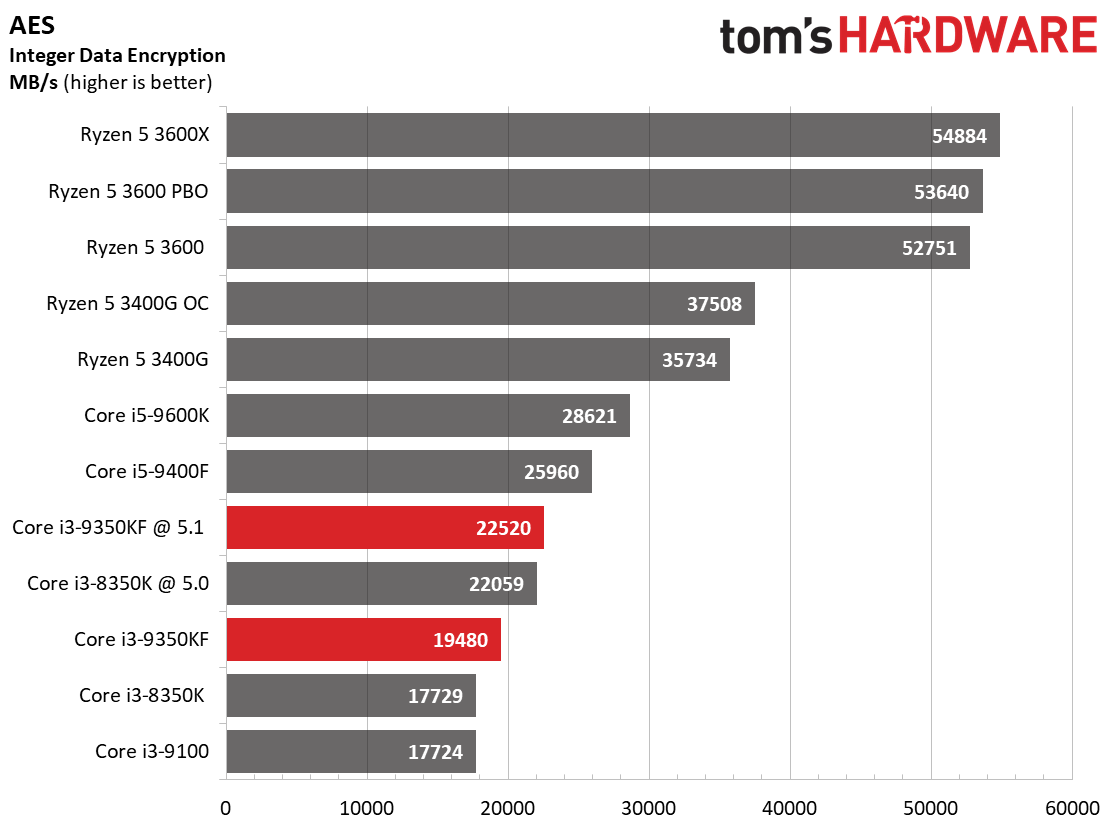
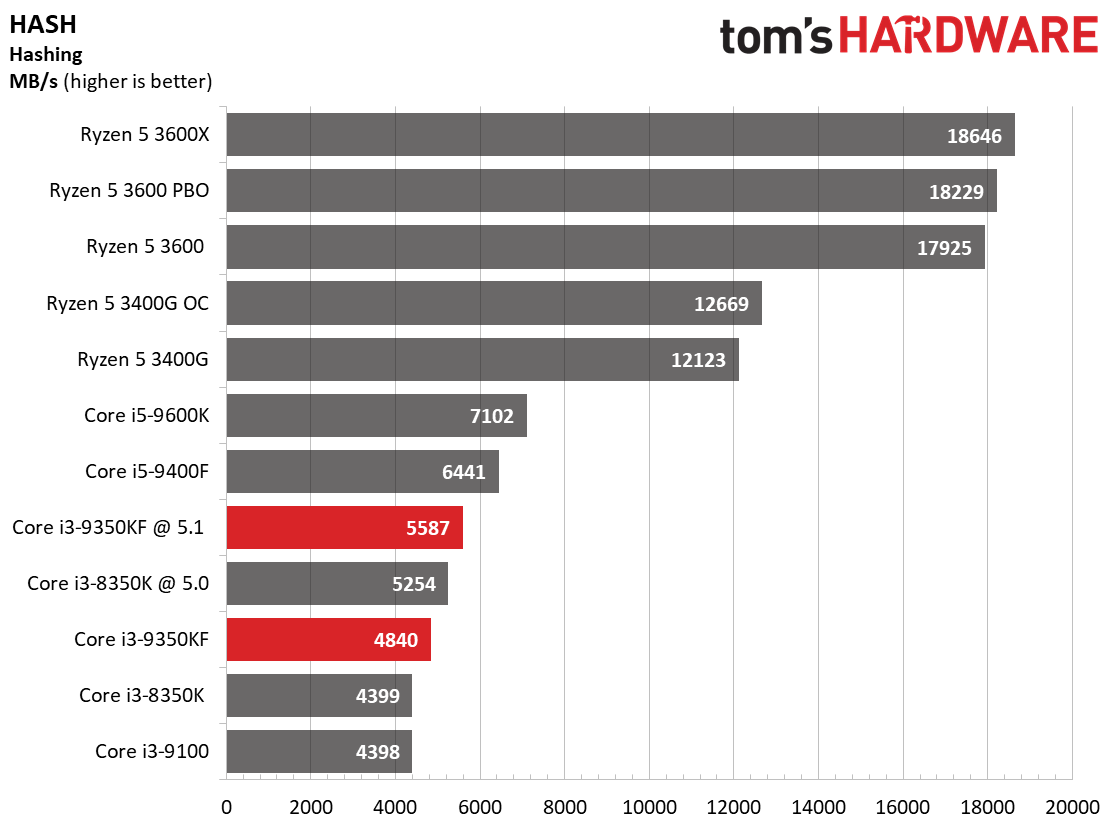
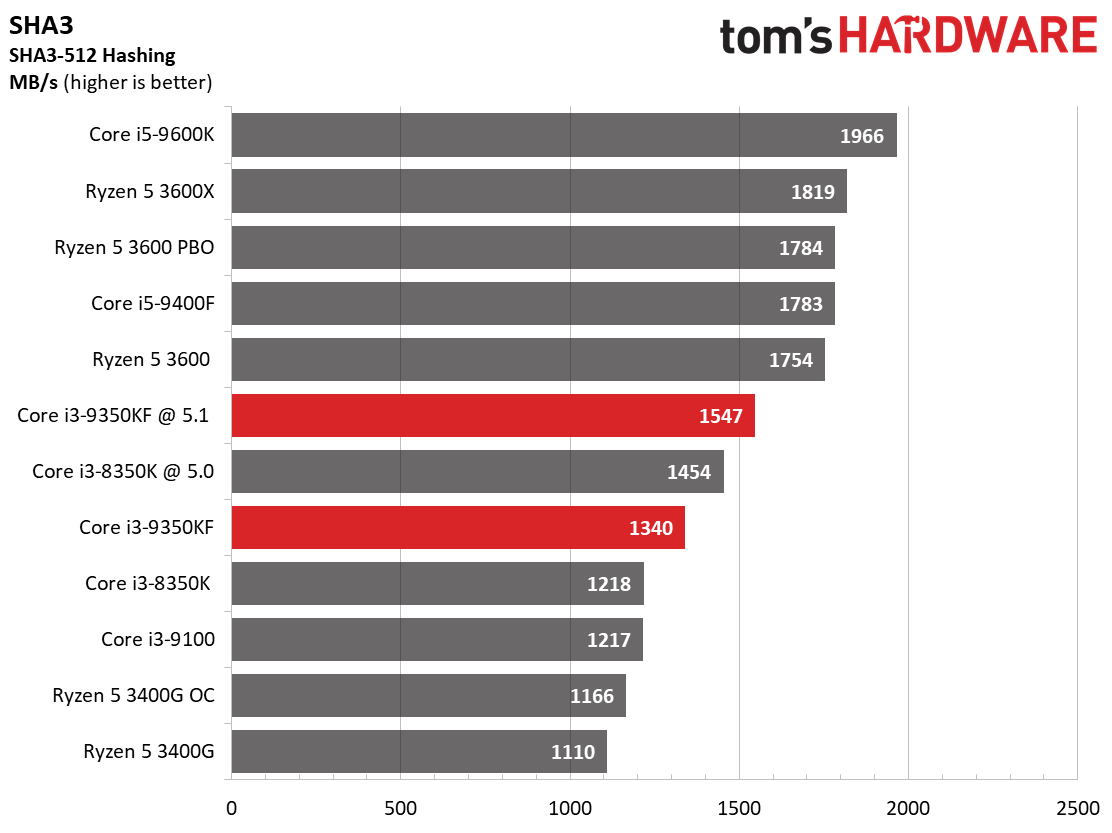
The 7zip and Zlib compression/decompression benchmarks rely heavily upon threading and work directly from system memory, thus avoiding the traditional storage bottleneck in these types of tasks. Ryzen dominates these tests without storage throughput restrictions, but you also have access to the PCIe 4.0 interface with AMD's X570 platform. That extra throughput means these tremendous gains will largely transfer over to real-world application performance when you pair the Ryzen chips with a speedy PCIe 4.0 SSD.
The heavily-threaded y-cruncher benchmark, which computes pi using the taxing AVX instruction set, finds the third-gen Ryzen processors offering a massive performance improvement over the Core i3-9350KF, partly due to their extra threads and AMD's AVX improvements.
MORE: Best CPUs
MORE: Intel & AMD Processor Hierarchy
MORE: All CPUs Content
Current page: Core i3-9350K Application Performance
Prev Page Core i3-9350K Gaming Next Page Coffee Lake's Stagnant Waters
Paul Alcorn is the Editor-in-Chief for Tom's Hardware US. He also writes news and reviews on CPUs, storage, and enterprise hardware.
-
g-unit1111 Is there any point in buying a 4/4 CPU on a platform that is becoming increasingly outdated anymore? Even for an office machine, a Ryzen 3400G is a more attractive CPU at that price.Reply -
Co BIY I would like to see some comment from the reviewers on the "snappiness" of the machines when powered by the various processors when doing various routine tasks. Do any of the benchmarks capture the "drive responsiveness" of the machine.Reply
I imagine that most those buying the lower end processors will be doing routine computer work like web browsing, word processing ect... I see that as the perfect use case for a very fast low core count processor. Feels fast in normal home/office use at a low cost. -
logainofhades Seeing recent reviews from GN, tech deals, and Hardware Unboxed, I am convinced 4 core/4 thread gaming, is essentially dead, at this point, unless you only play old titles that don't need more than 2-4 cores. The six core Ryzen 5's still keep going, where the i3 and i5 intels run out of steam, due to insufficient resources, being limited to 4 and 6 core without hyperthreading.Reply -
g-unit1111 Replylogainofhades said:Seeing recent reviews from GN, tech deals, and Hardware Unboxed, I am convinced 4 core/4 thread gaming, is essentially dead, at this point, unless you only play old titles that don't need more than 2-4 cores. The six core Ryzen 5's still keep going, where the i3 and i5 intels run out of steam, due to insufficient resources, being limited to 4 and 6 core without hyperthreading.
Yeah especially when you can get a 2nd gen Ryzen CPU for ridiculously cheap right now. Even the 3rd gen CPUs are still a relative bargain compared to their Intel counterparts. -
Giroro Replylogainofhades said:Seeing recent reviews from GN, tech deals, and Hardware Unboxed, I am convinced 4 core/4 thread gaming, is essentially dead, at this point, unless you only play old titles that don't need more than 2-4 cores. The six core Ryzen 5's still keep going, where the i3 and i5 intels run out of steam, due to insufficient resources, being limited to 4 and 6 core without hyperthreading.
I've been under the assumption that games are being optimized for 8 threads, because of the consoles.
I'll need to look into if 4c/8t outperforms 6/6 at gaming to see if that's true, even though 4 hyperthreaded cores are usually going to be worse than 6 physical cores at overall number crunching.
I wonder how console-comparable pre-ryzen 8-weak-core AMD processors hold up with modern games compared to 4 fast cores. -
ScrewySqrl ReplyGiroro said:I've been under the assumption that games are being optimized for 8 threads, because of the consoles.
I'll need to look into if 4c/8t outperforms 6/6 at gaming to see if that's true, even though 4 hyperthreaded cores are usually going to be worse than 6 physical cores at overall number crunching.
I wonder how console-comparable pre-ryzen 8-weak-core AMD processors hold up with modern games compared to 4 fast cores.
Anecdotally, I'm seeing a lot of "FX-8350 or better" in the 'recommended' listing of $50-60 games on Steam, so I'm guessing those older 8 cores are working better now that things are optimized for 8 cores. -
logainofhades ReplyGiroro said:I've been under the assumption that games are being optimized for 8 threads, because of the consoles.
I'll need to look into if 4c/8t outperforms 6/6 at gaming to see if that's true, even though 4 hyperthreaded cores are usually going to be worse than 6 physical cores at overall number crunching.
I wonder how console-comparable pre-ryzen 8-weak-core AMD processors hold up with modern games compared to 4 fast cores.
Games are starting to use more threads, because of Ryzen, really. Hence Intel finally pushing core counts higher, across all product lines. I would expect a 6c/6t to do better, than a 4c/8, but still suffer from frametime issues, a 6c/12t CPU like an intel 8700k, or a Ryzen 5 3600, would not. -
mdd1963 Just how many times can the 7600K be recycled, bumped up 100 MHz, given a new name, and called 'new'....Reply
This processor should be $59 , and a questionable purchase even then, but, it is NEVER worth $180+....(Intel, trim it's price by 60-70% , pronto..!) -
mdd1963 The review actually discusses the advantages of PCI-e 4.0? Honestly, with no GPUs yet available using it, and, I rather doubt anyone pondering this rig or an R5-1600 or less is pondering the latest NVME 4.0 drive on an X570 onslaught at 50-70% increased NVME storage cost but often an actual .1% longer 50 GB file transfer vs. the 970 EVO in real world testing.Reply -
logainofhades Replymdd1963 said:The review actually discusses the advantages of PCI-e 4.0? Honestly, with no GPUs yet available using it, and, I rather doubt anyone pondering this rig or an R5-1600 or less is pondering the latest NVME 4.0 drive on an X570 onslaught at 50-70% increased NVME storage cost but often an actual .1% longer 50 GB file transfer vs. the 970 EVO in real world testing.
While the are not taking advantage of the bandwidth, AMD's NAVI cards are PCI-E 4.0. X570 is not compatible with 1st gen Ryzen. Only a 3rd gen CPU, with an x570, gets you PCI-E 4.0. I do agree that PCI-E 4.0, is not really necessary, for the average user, at this time.